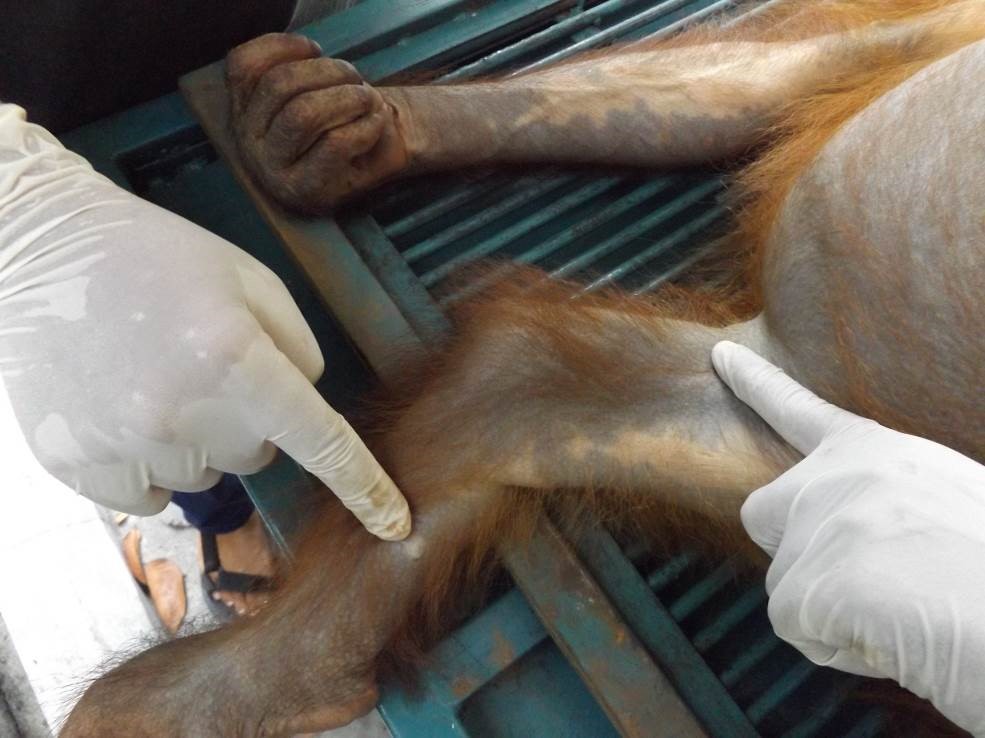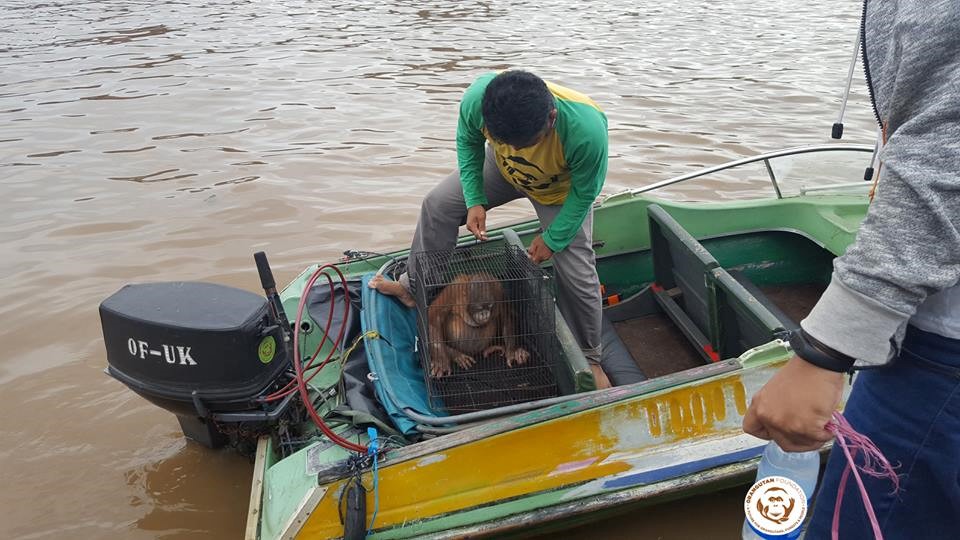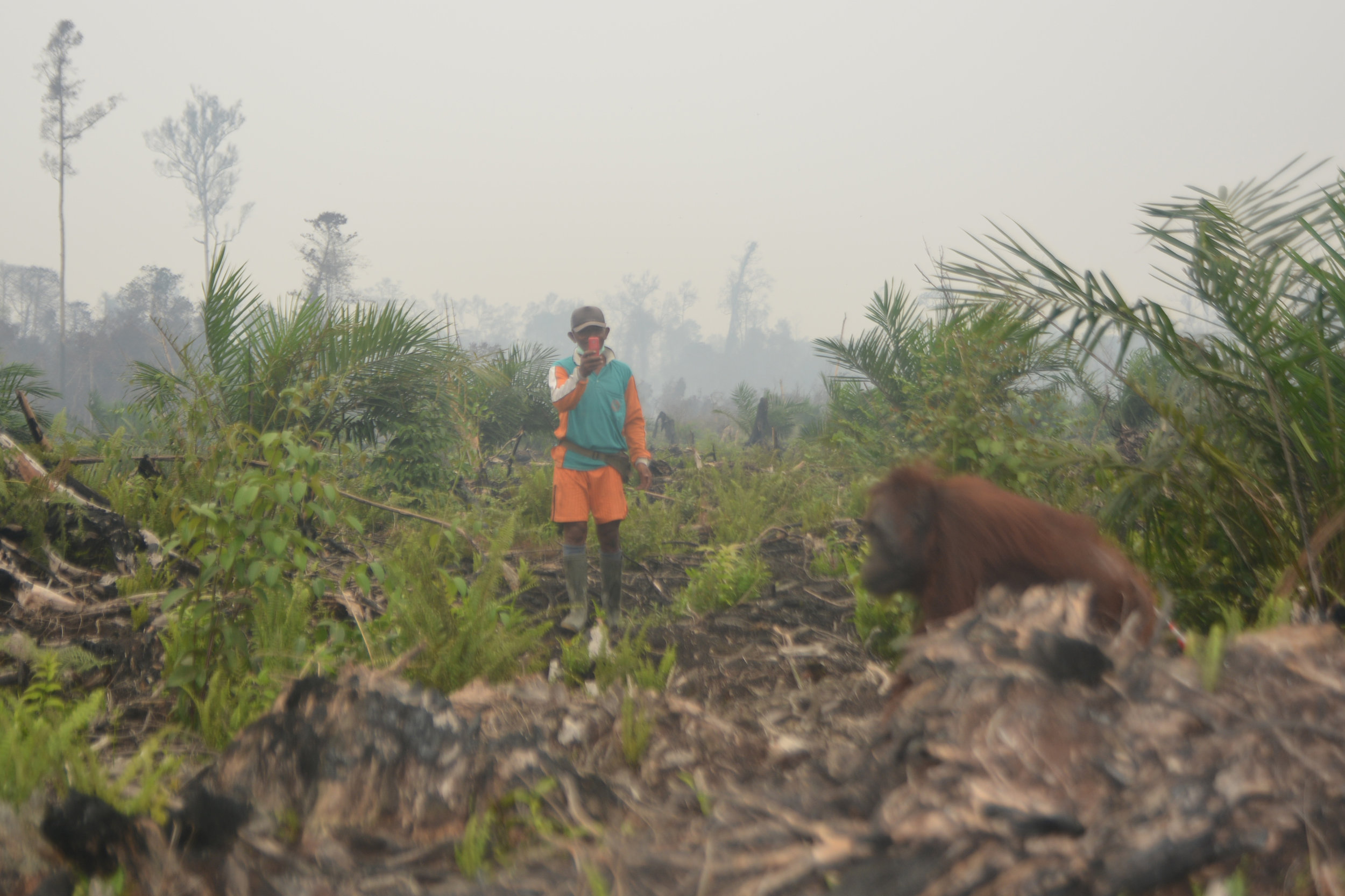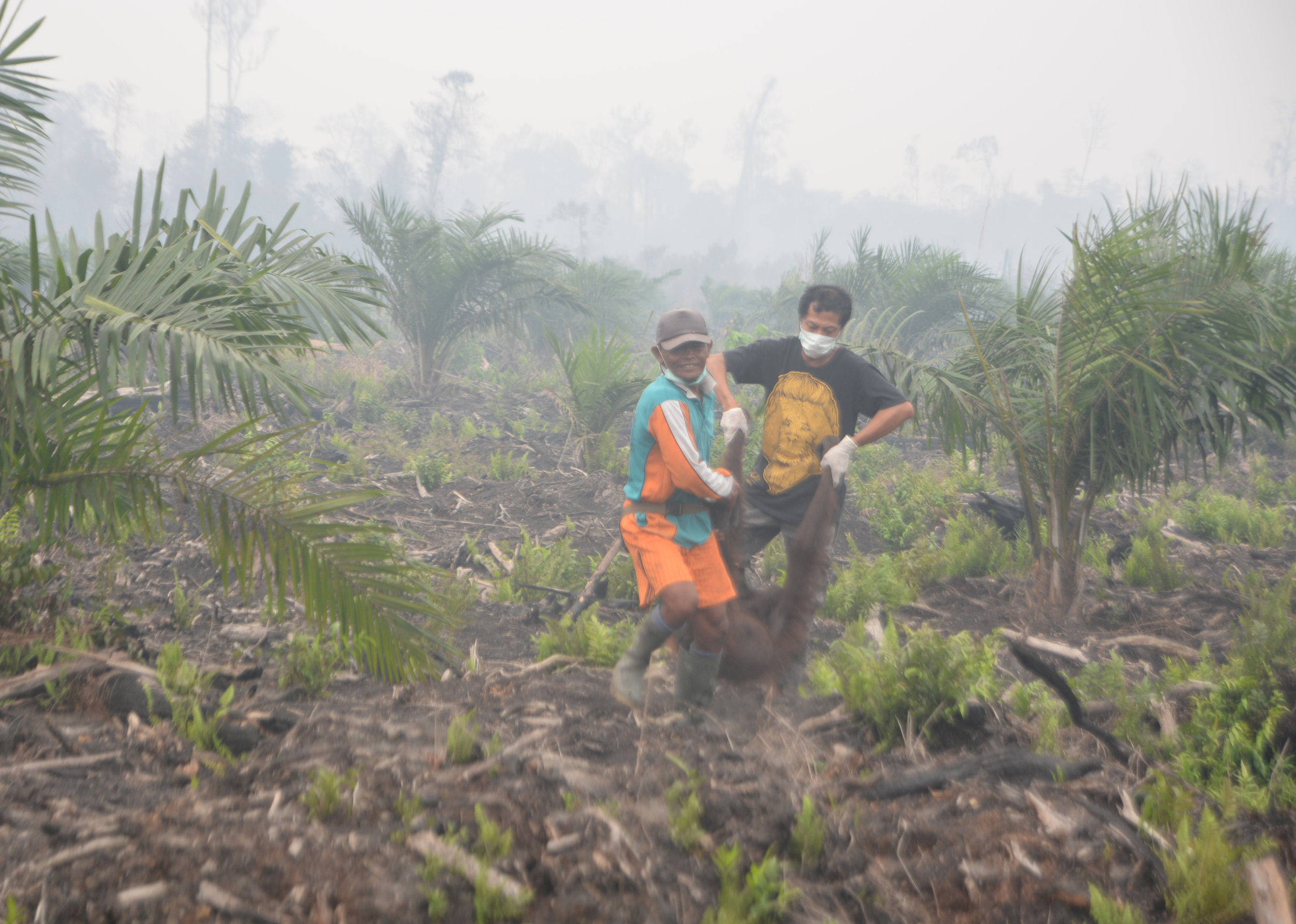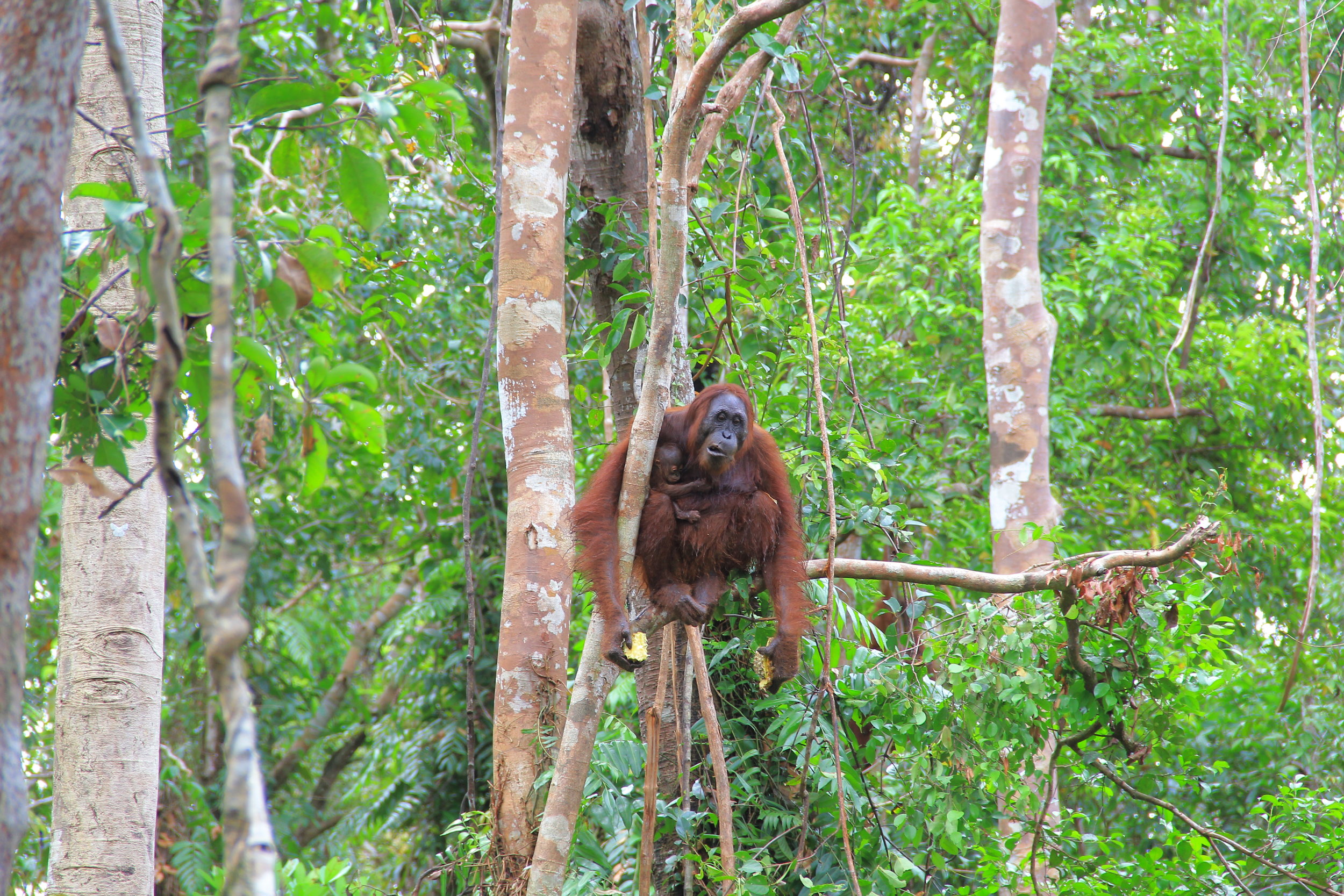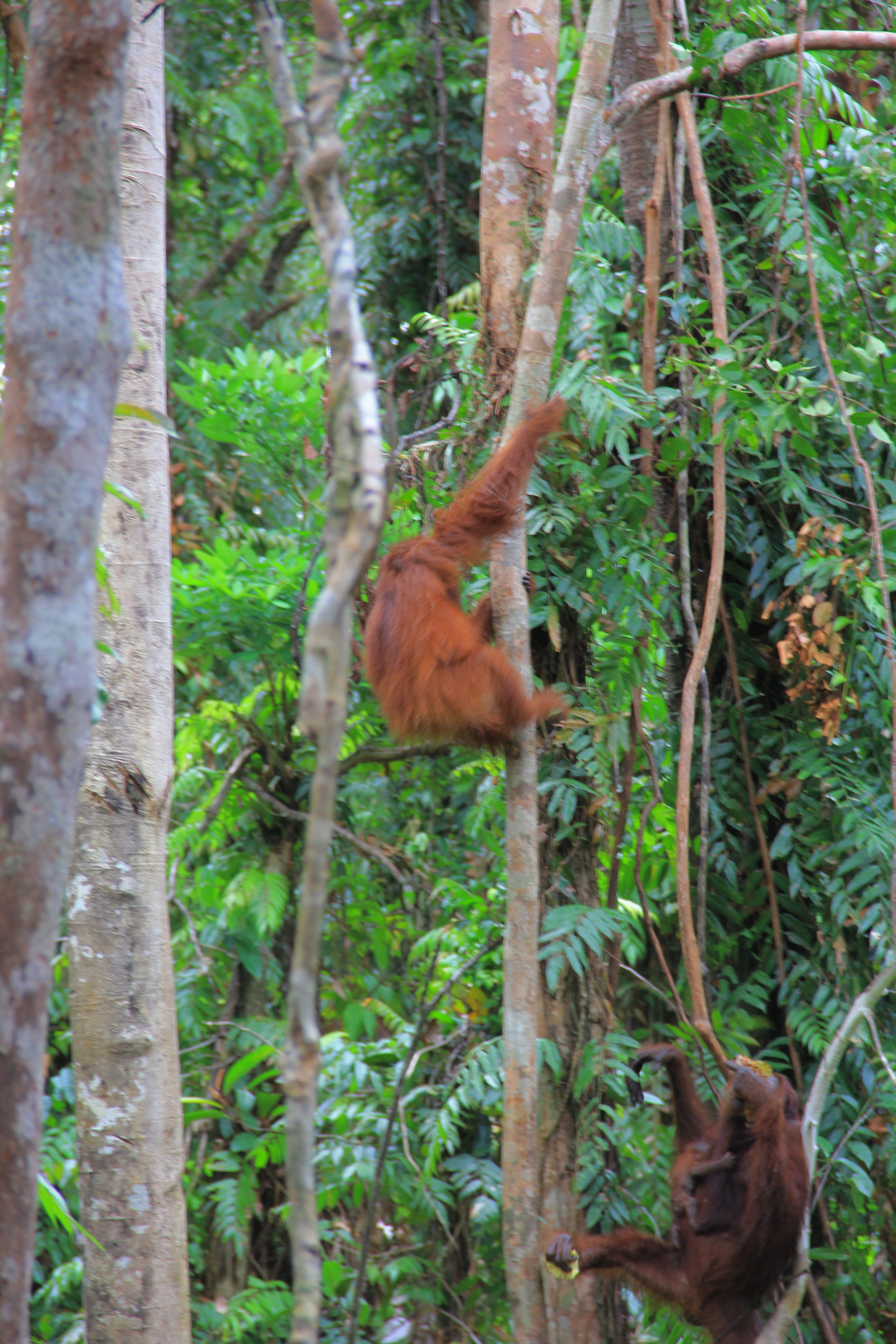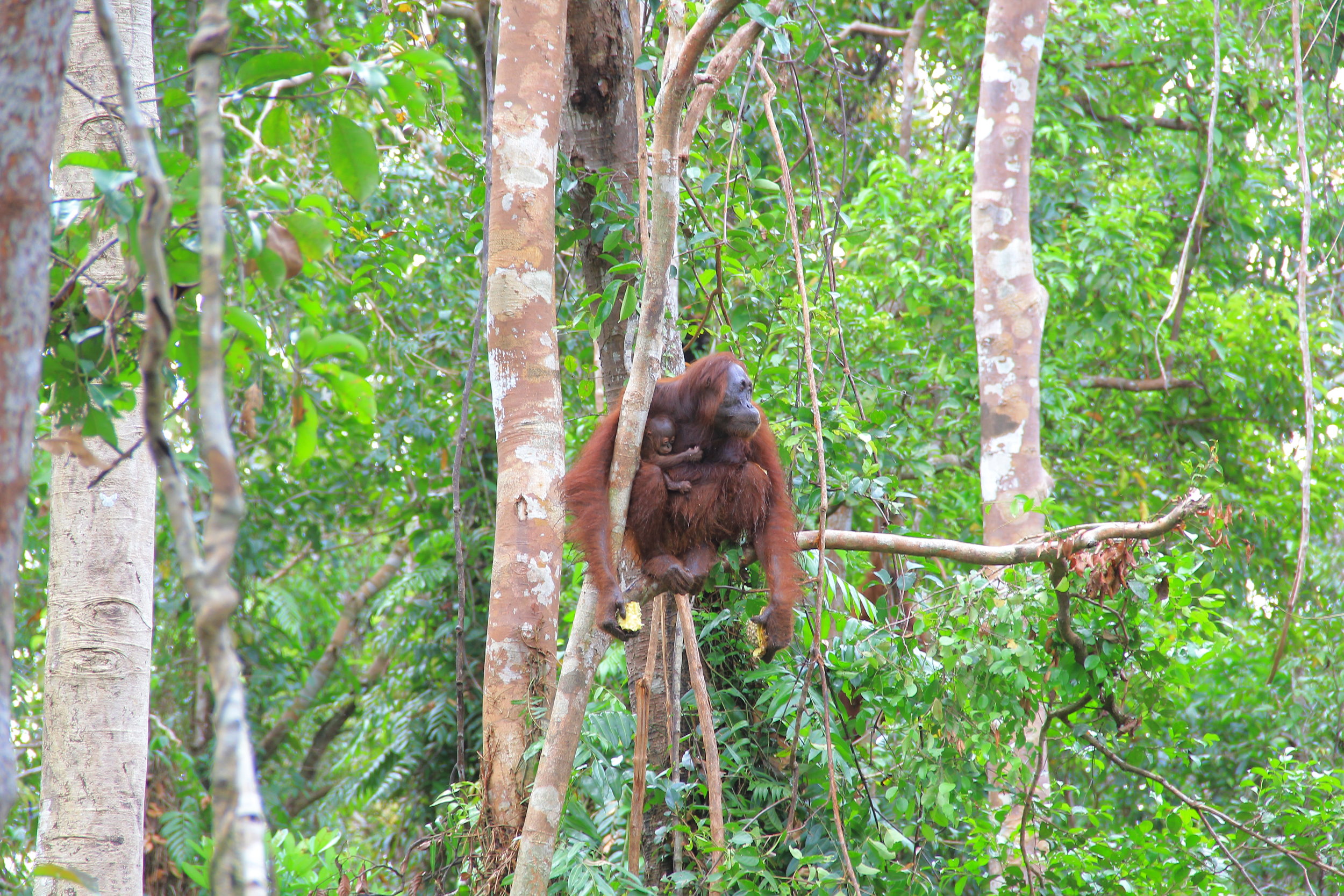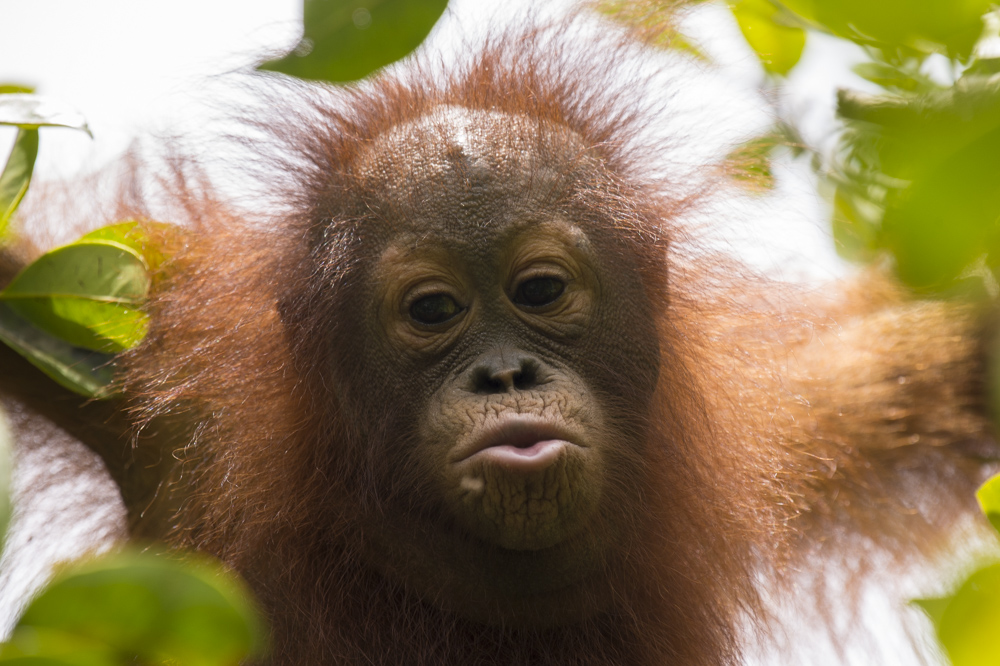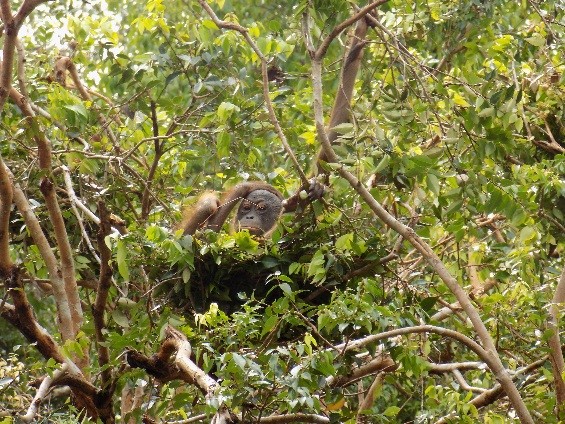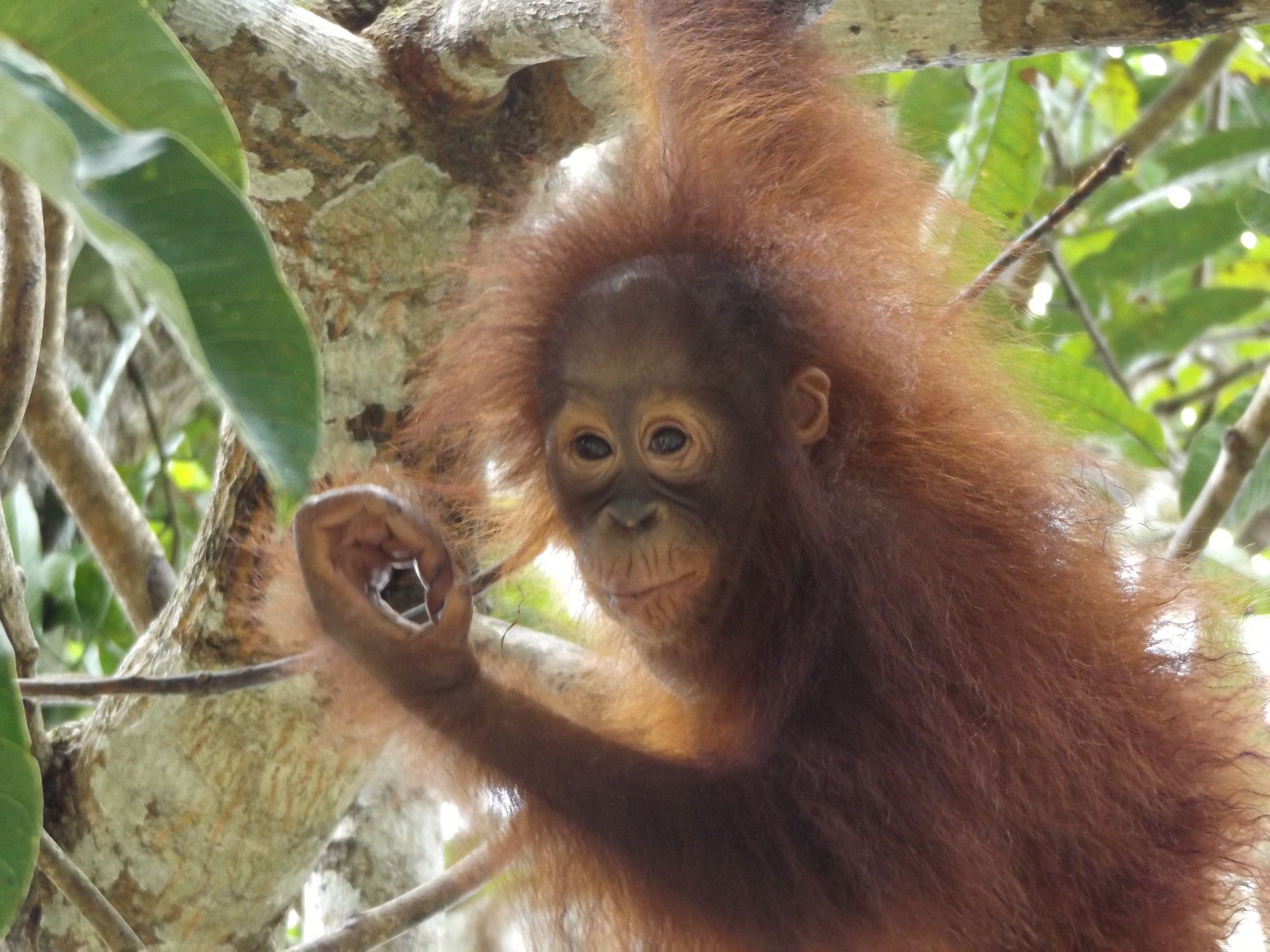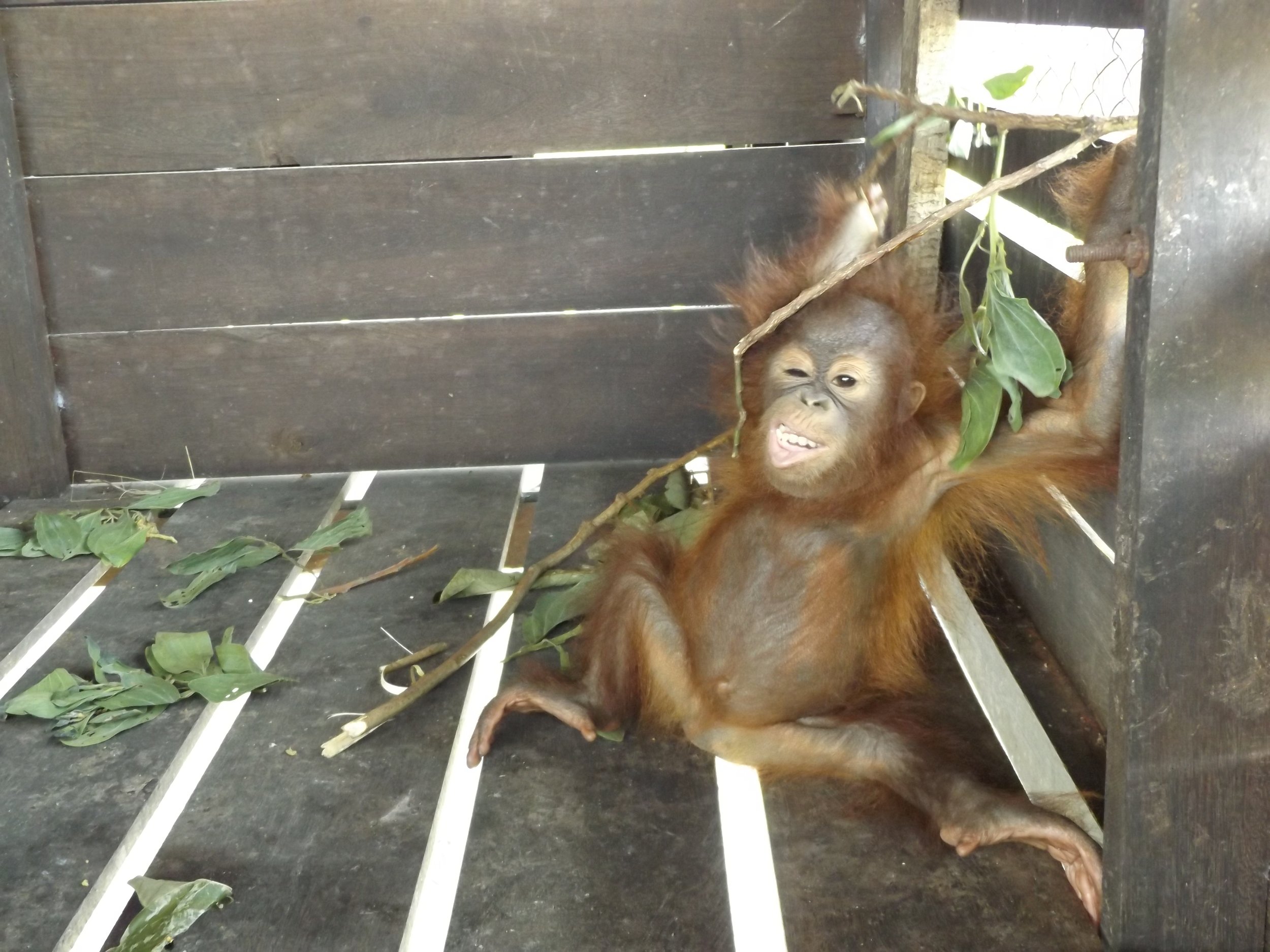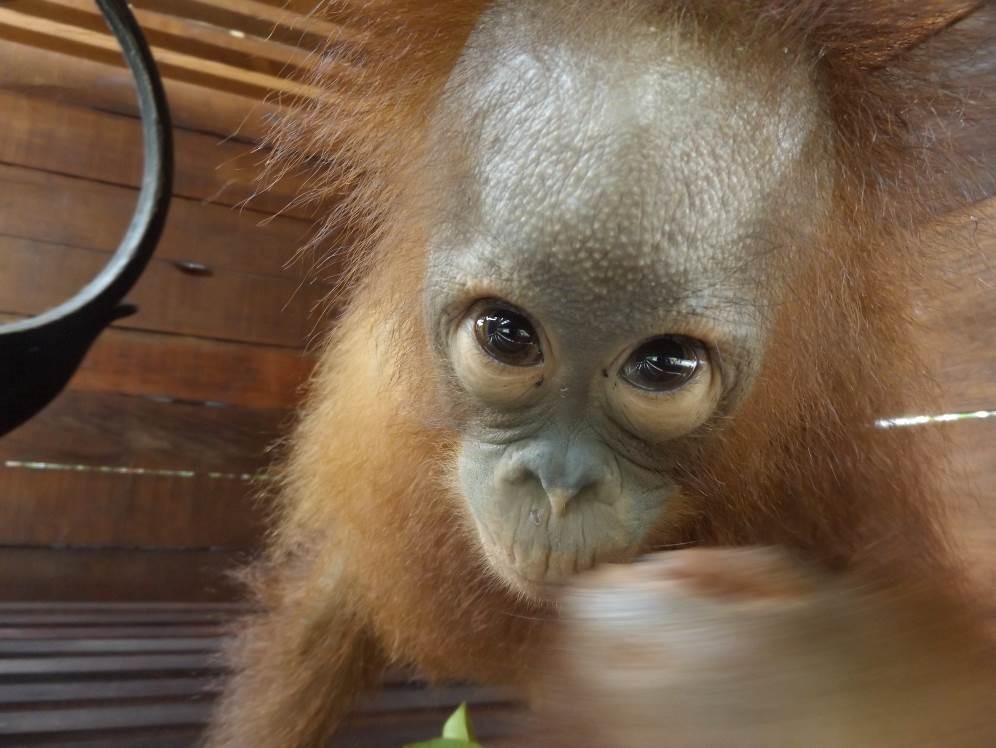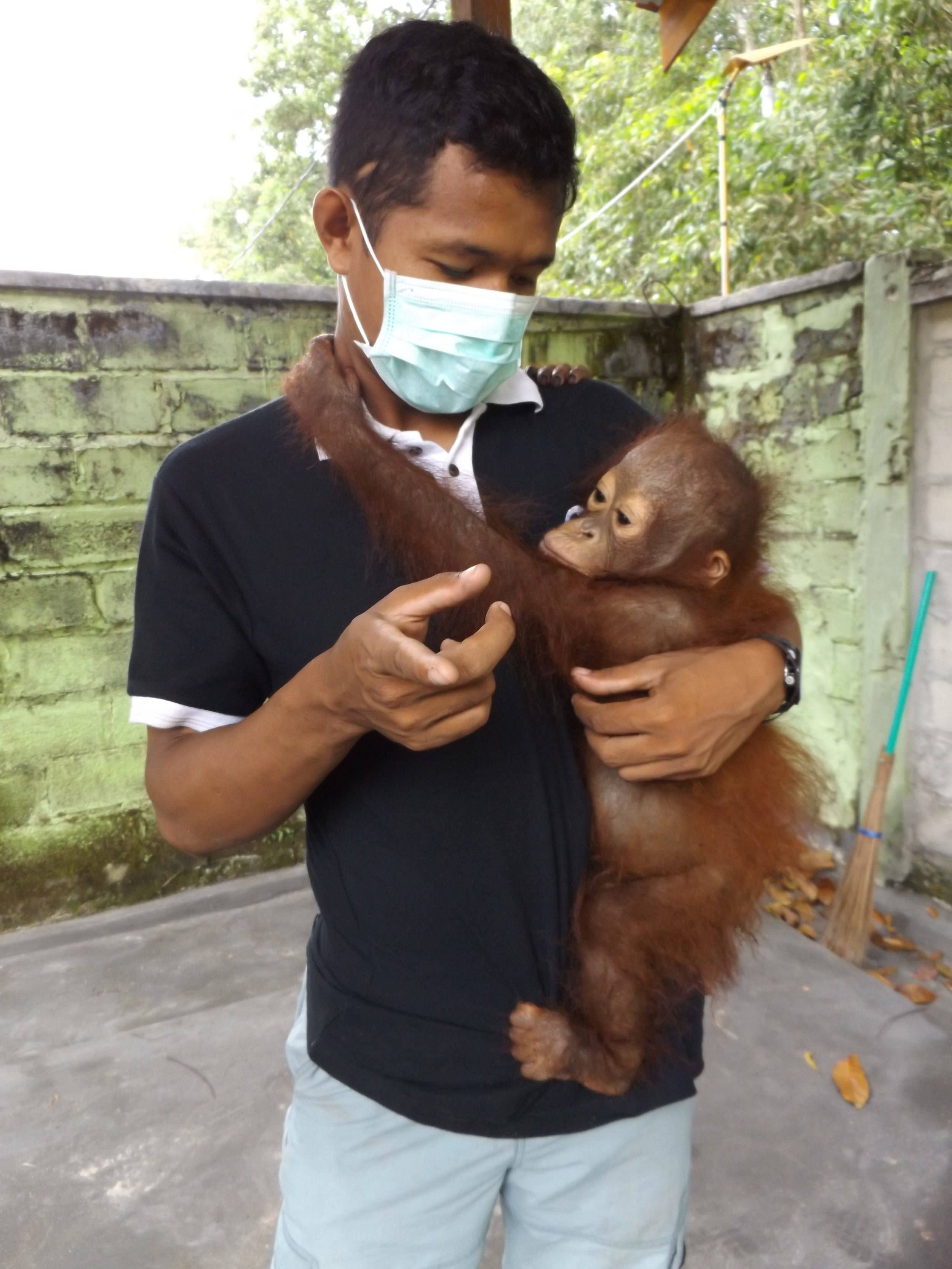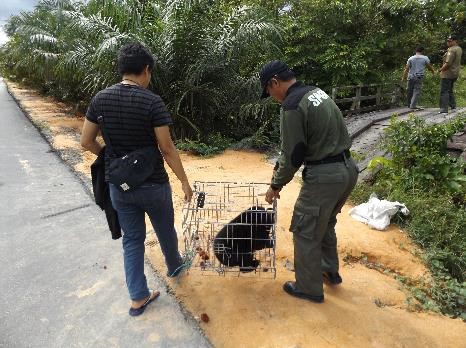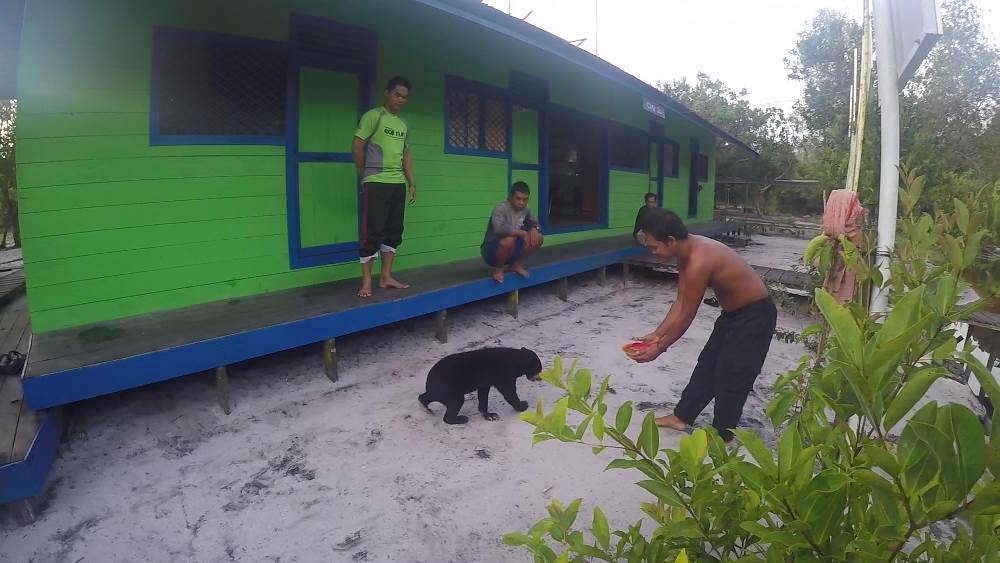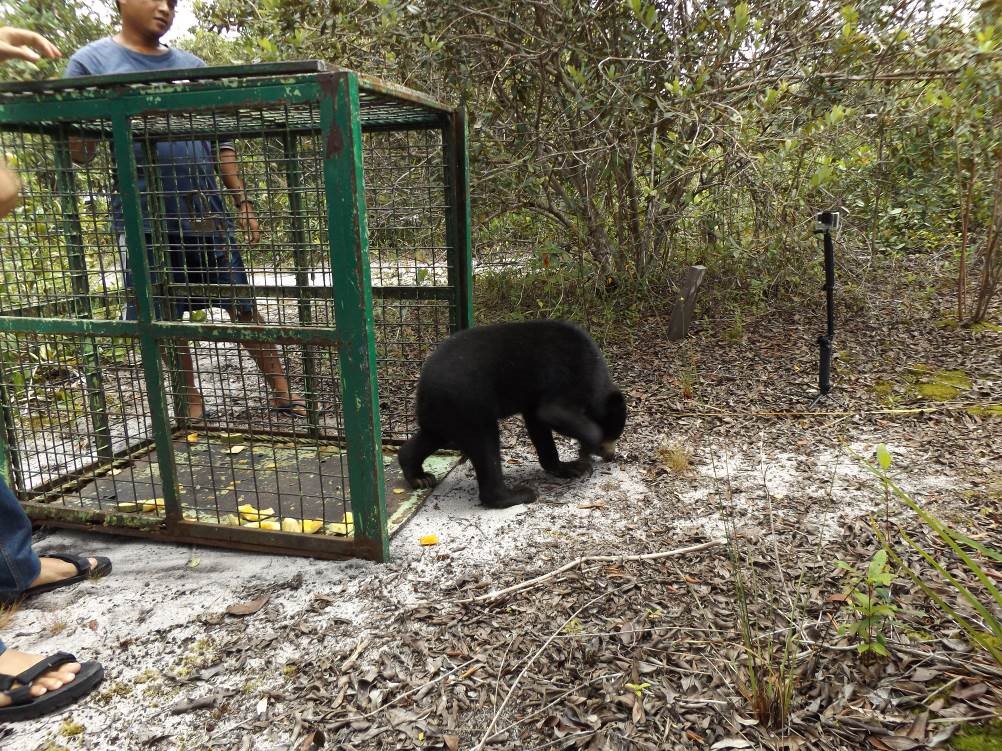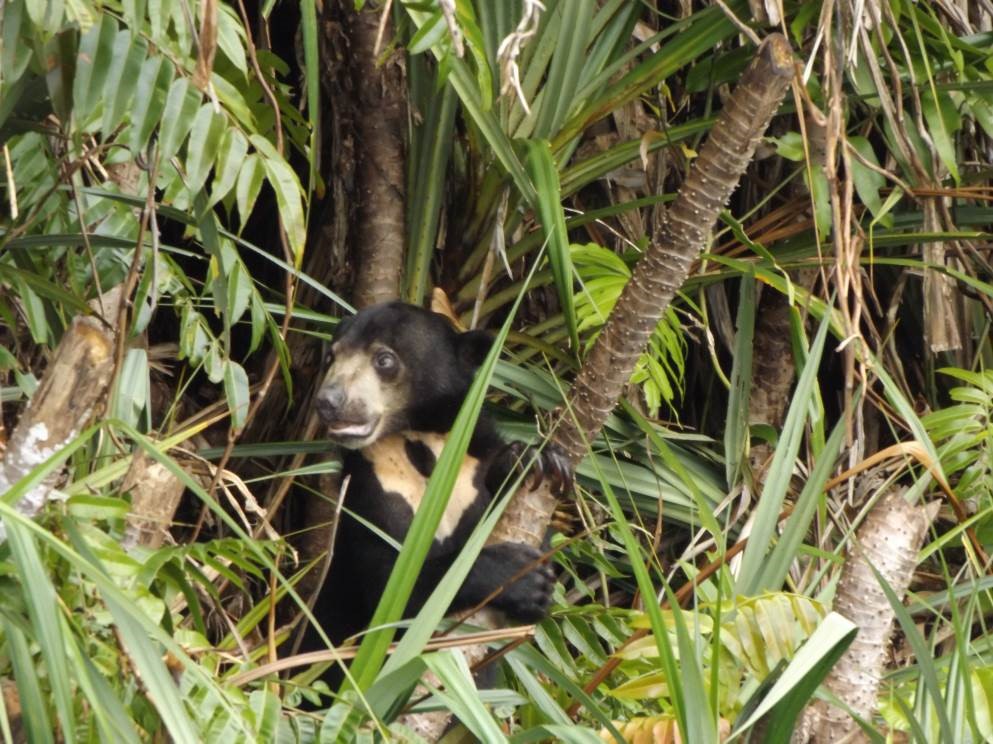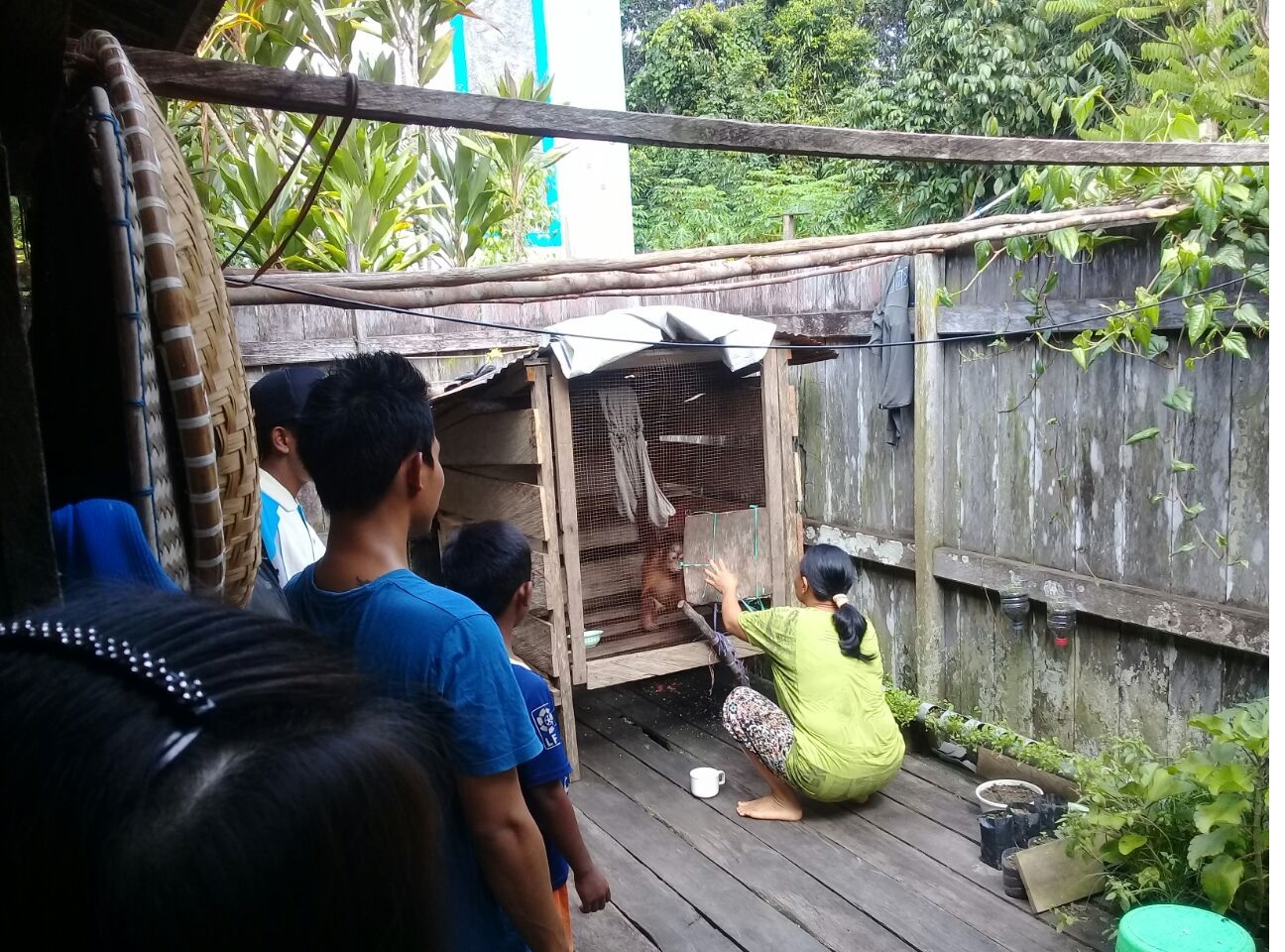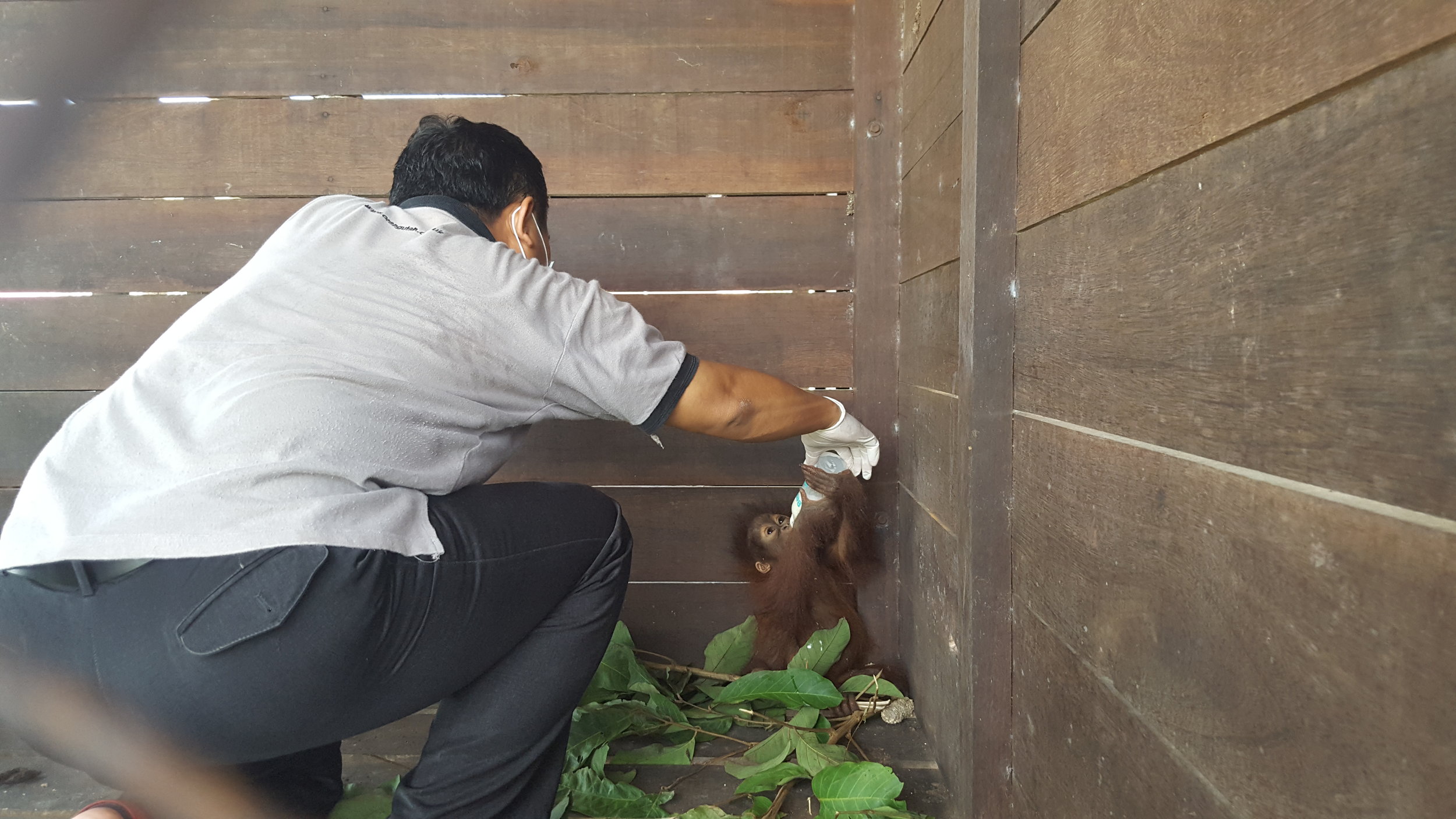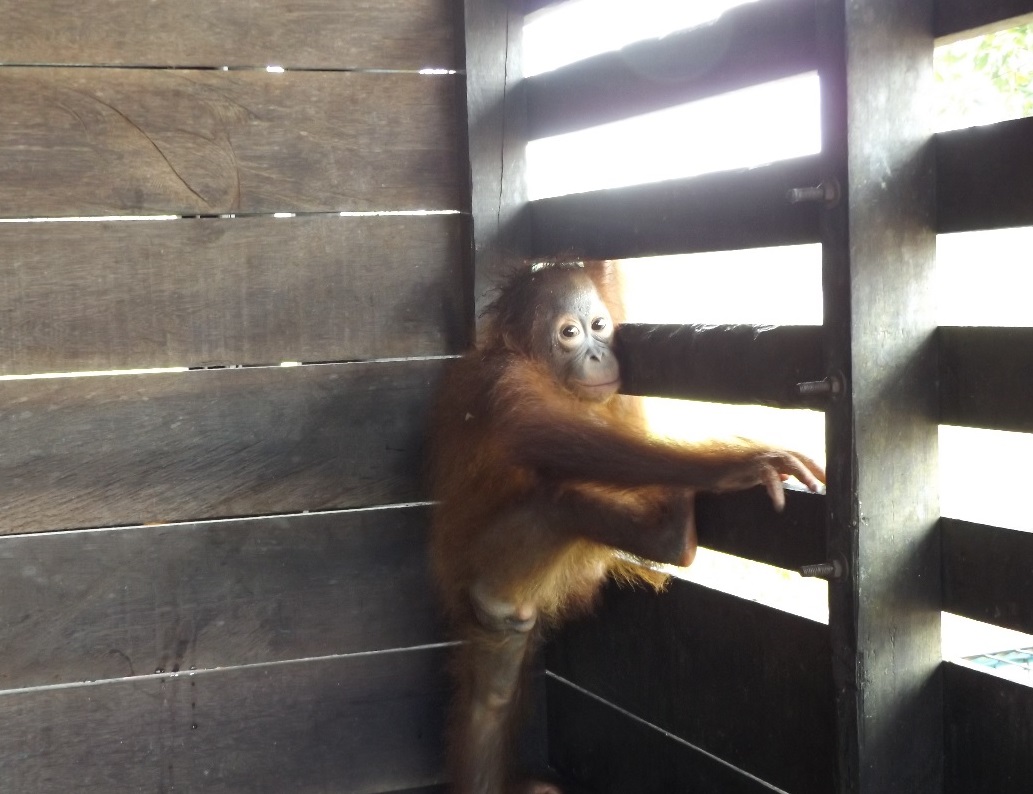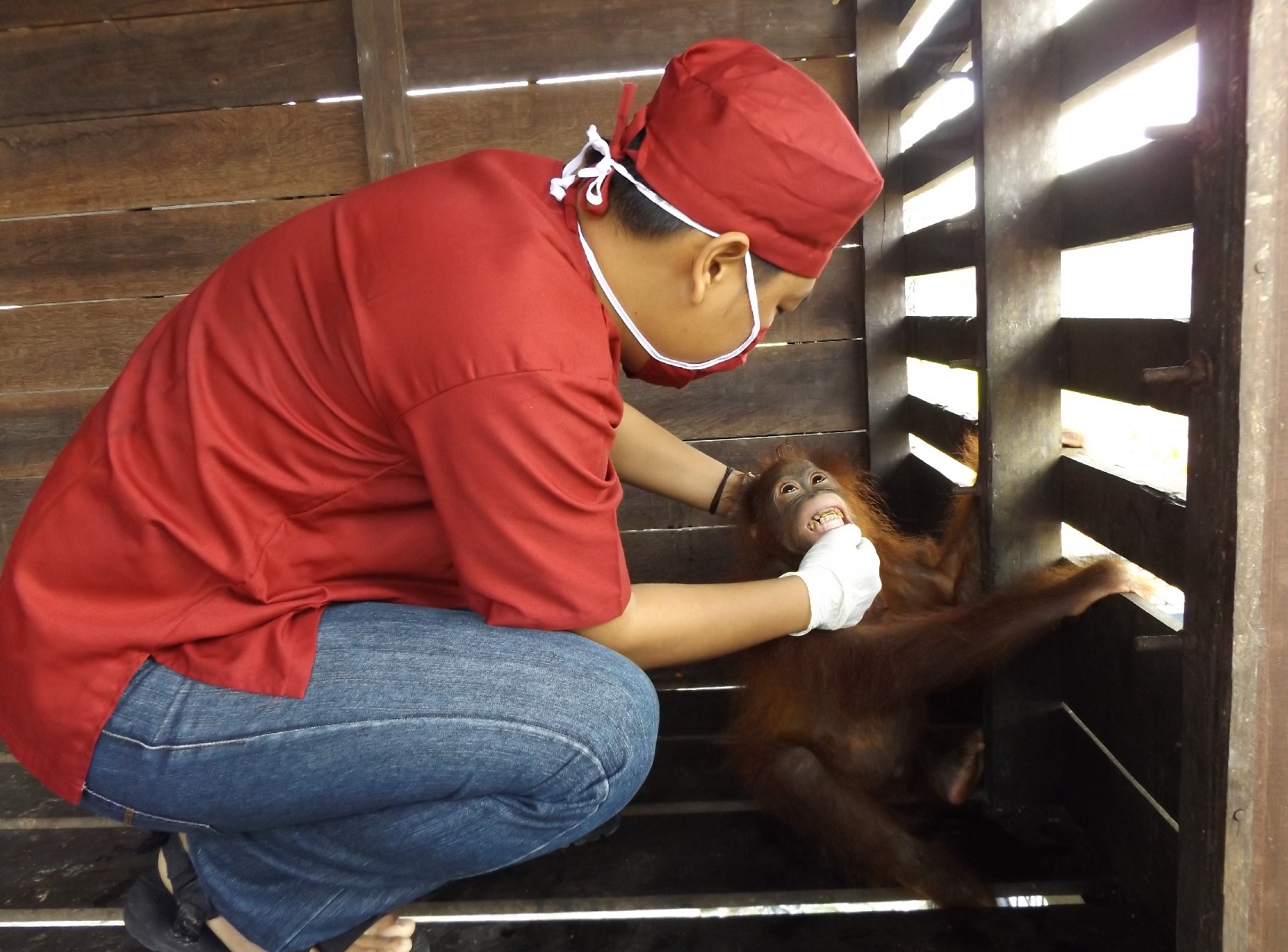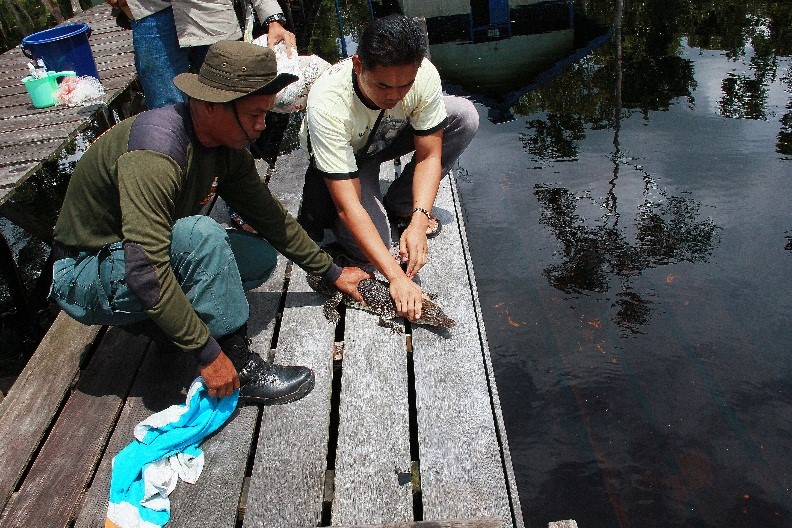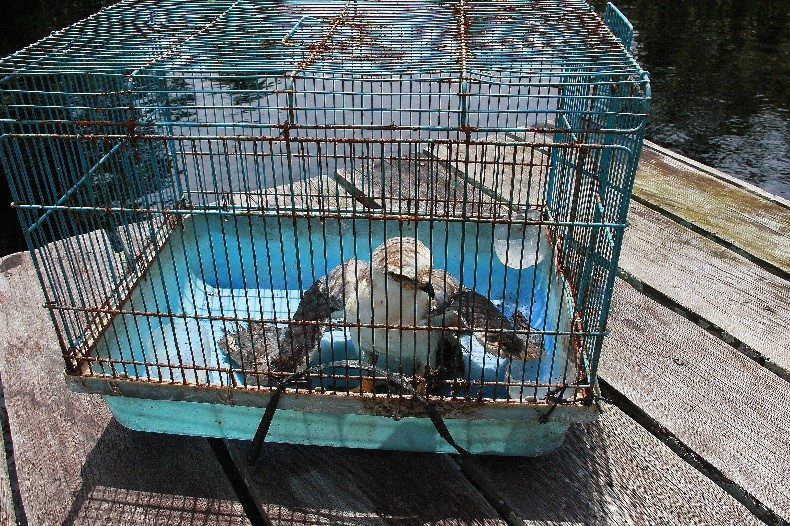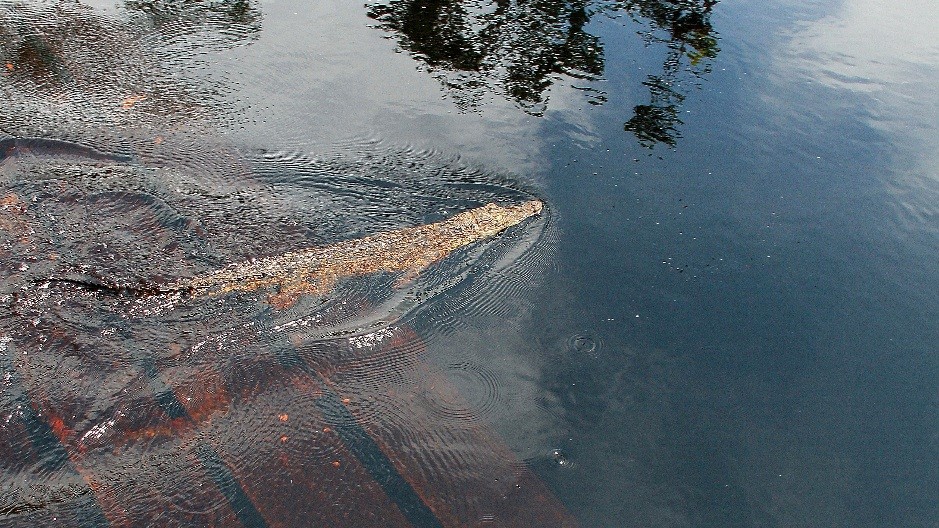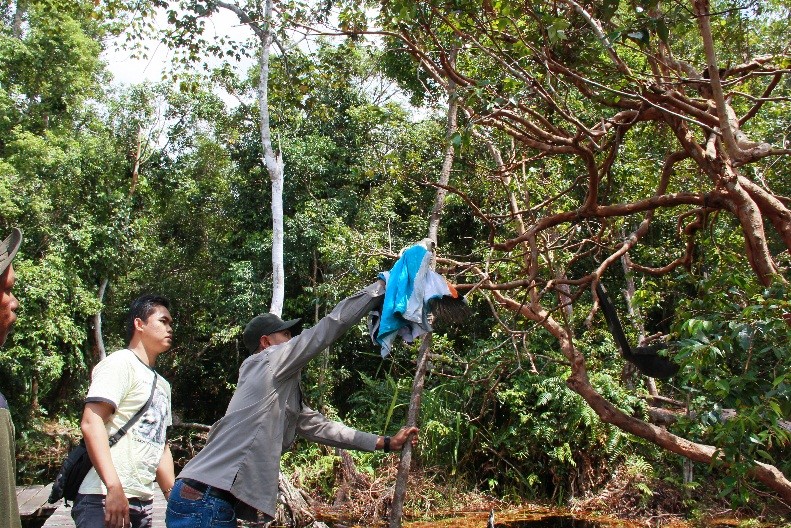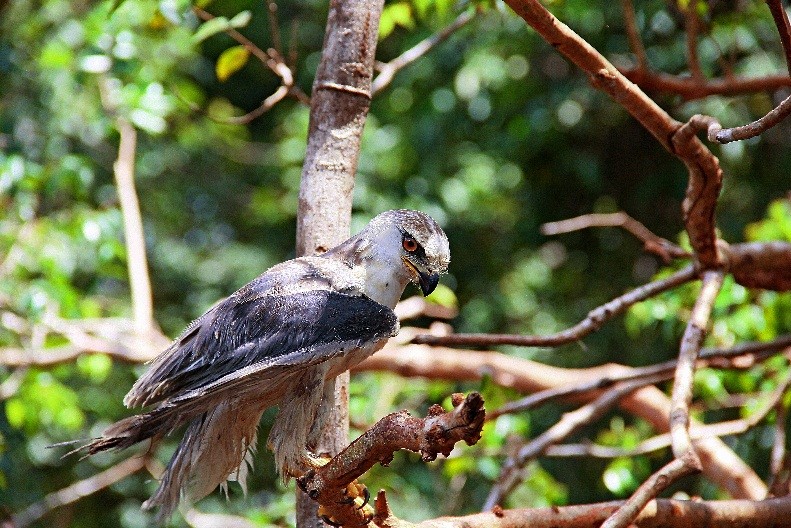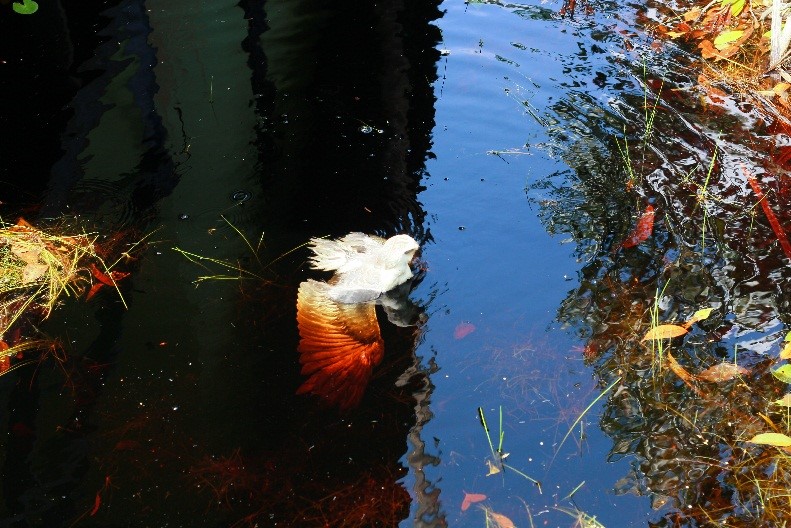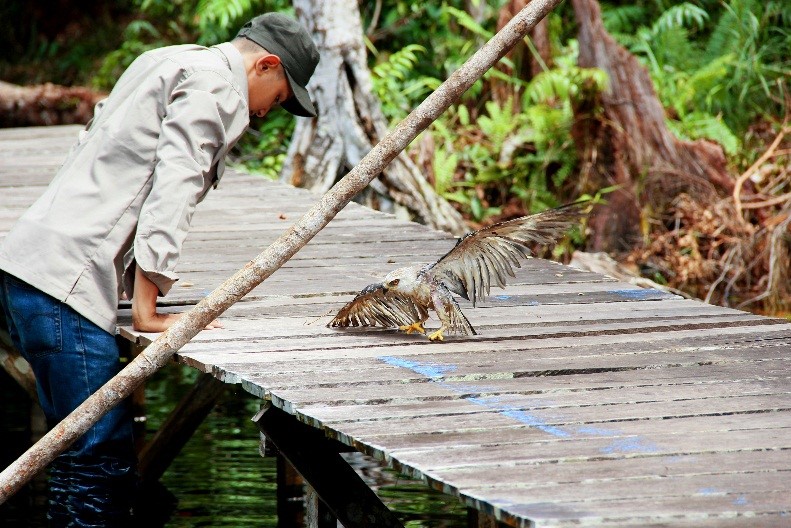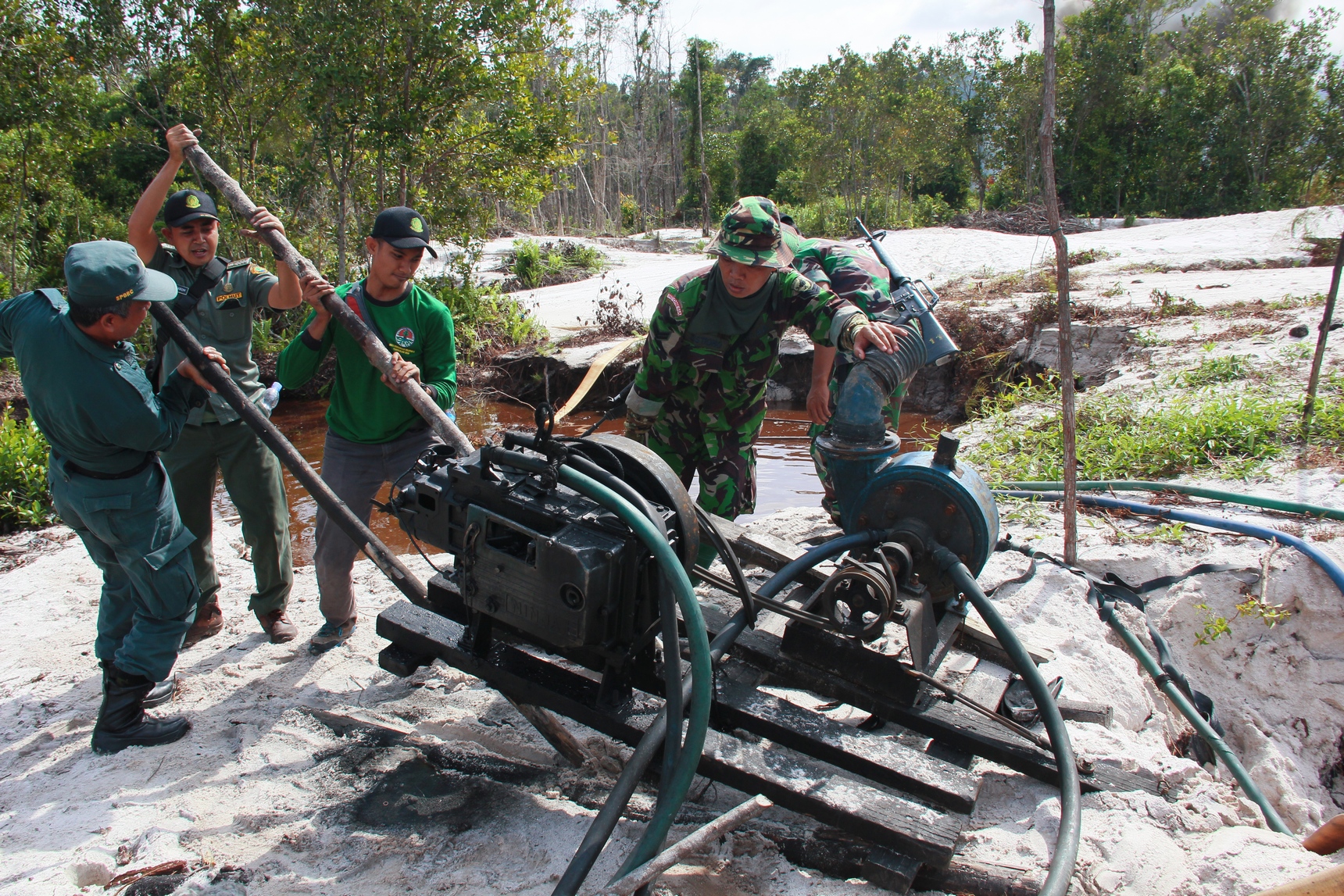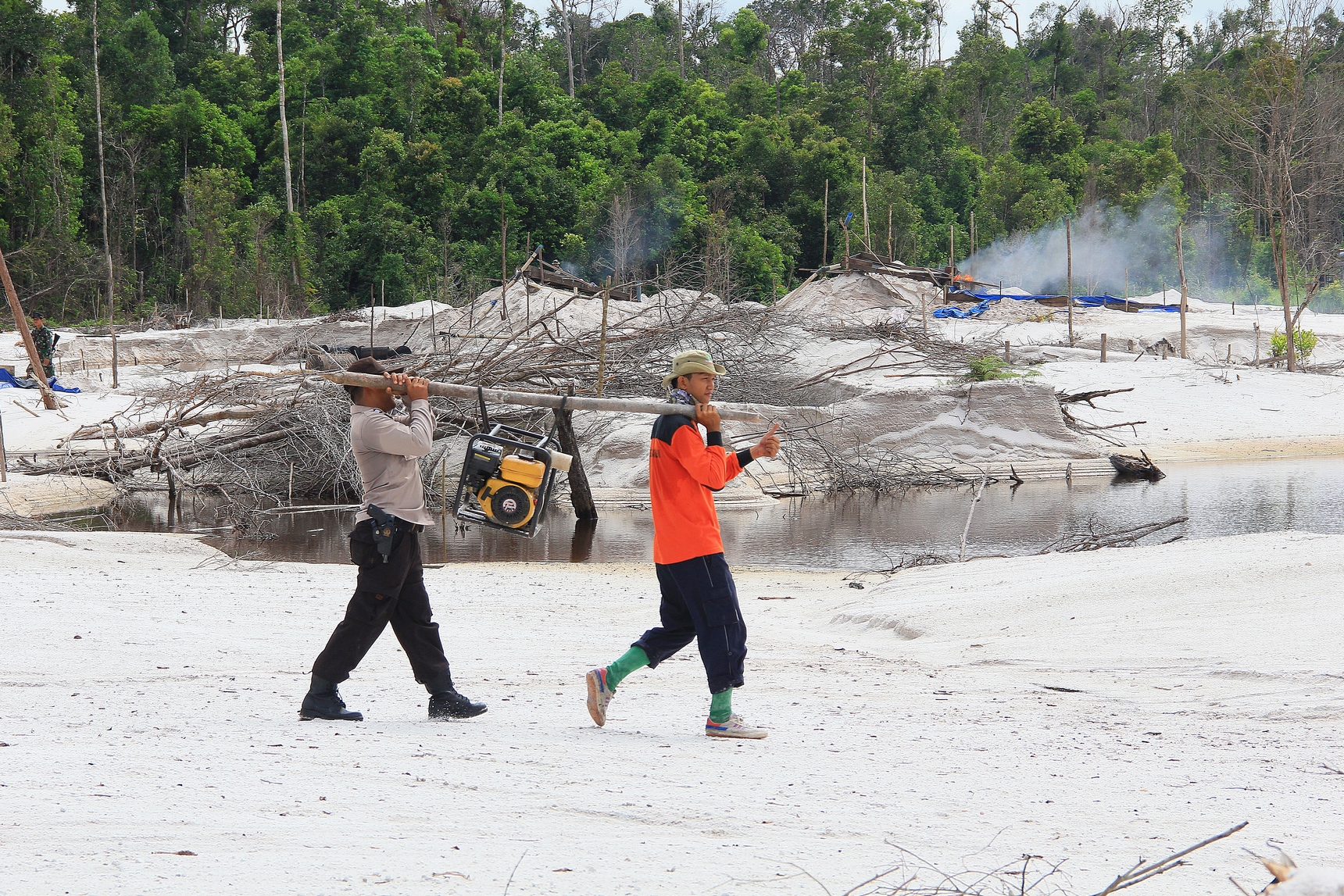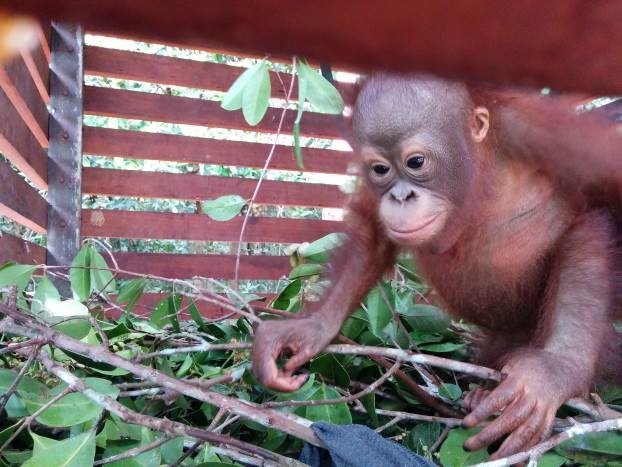Our vet, Dimas and programme manager, Iman, have been on their weekly visits to the orangutan release camps in the Lamandau Wildlife Reserve, Central Kalimantan, Indonesian Borneo. They check on the orphaned young orangutans and ensure the good health of the released orangutans. Their journey took longer than usual because the river levels are very low, due to lack of rain. Instead of travelling by speedboat it was completed in a shallow longboat (or klotok, as they’re called in Indonesia). Our youngest orangutans are cared for at Camp JL and include Timtom, Nyunyu, Adib, Mona (photo below) and Boy. Dimas gave them their multivitamin injection to keep them healthy but they are all well and active.
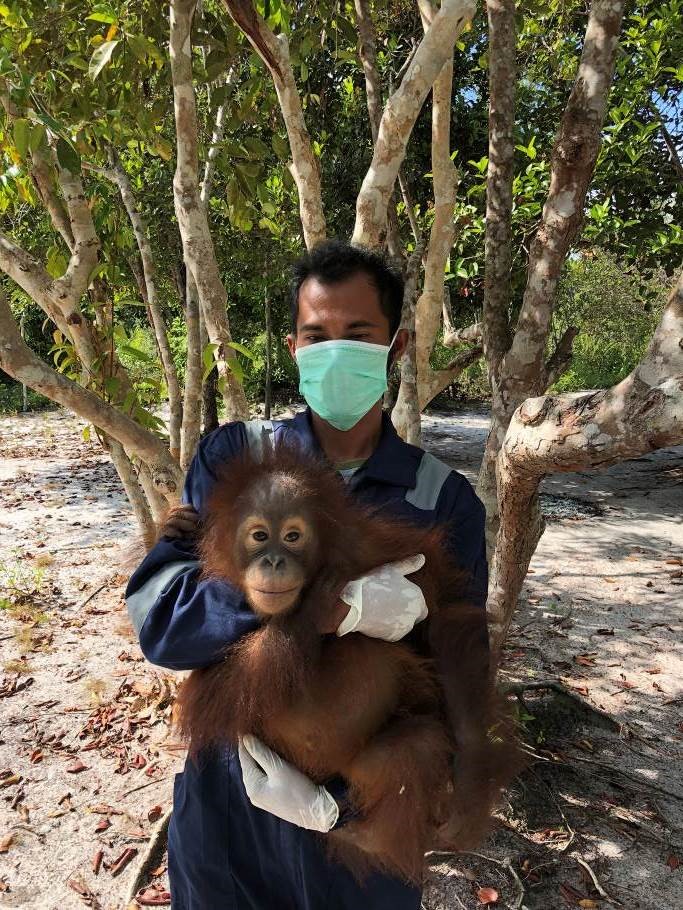
In the afternoon they continued by longboat to Gemini Camp. This is where blind orangutan Aan lives. Aan was shot and can never be returned to the wild. Her enclosure recently had new ropes (see below).
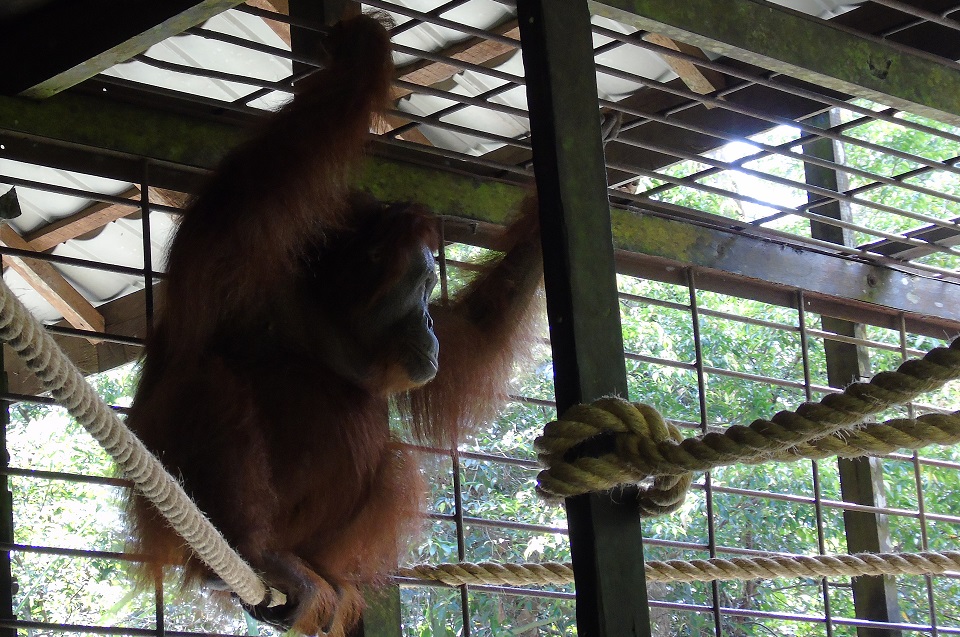
They walked from camp through the forest to the feeding site, where supplementary fruit is provided. Dominant male, Bangkal came to feeding along with female and infant orangutans; Ilik and Izzy; Hola and Happy; Ebony and Ekon (photos below); and Passion and Paris. Max was also seen with her newborn infant, now named Monti and they seemed well.
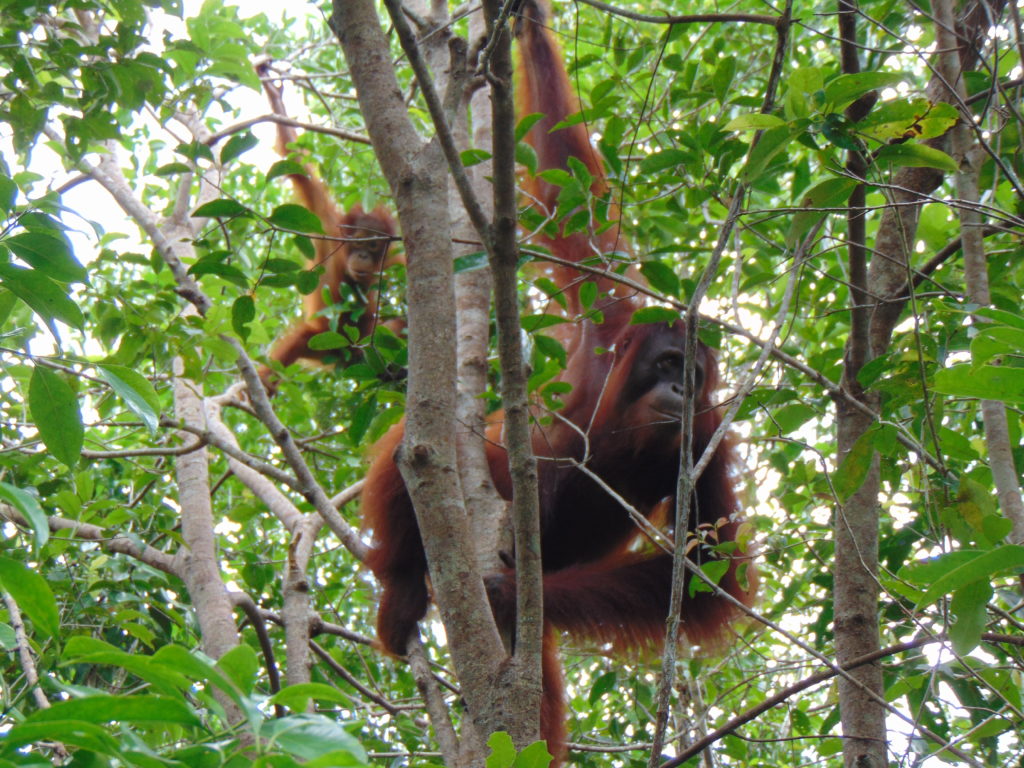
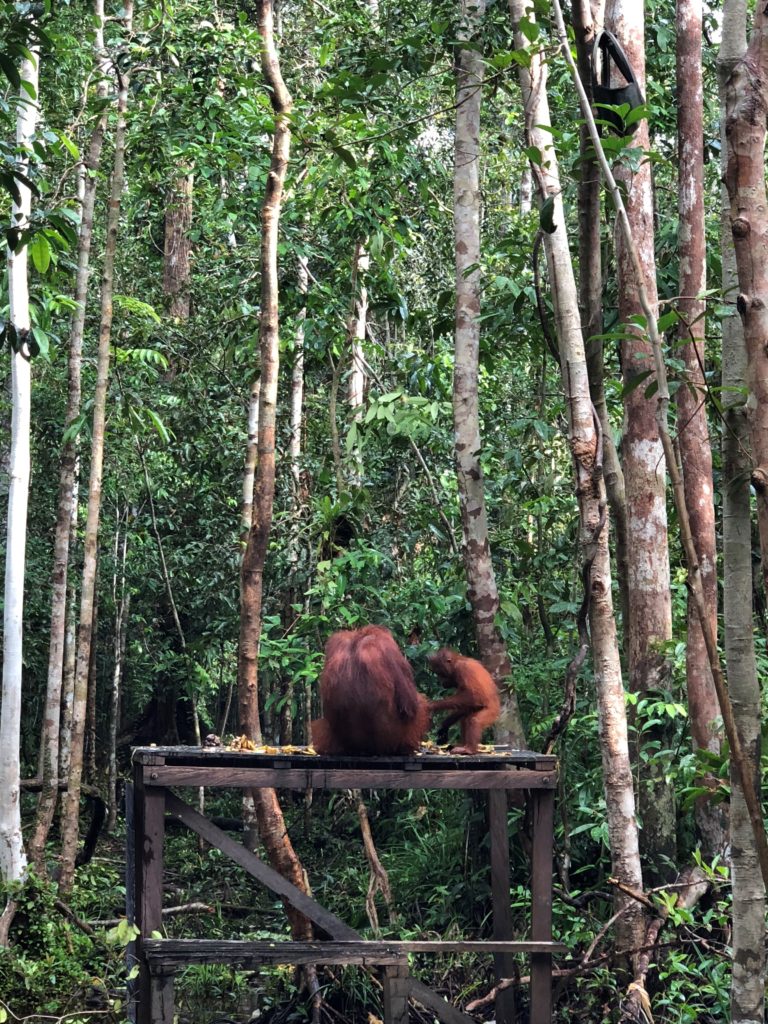
A few days later they went to Camp Buluh, to check on orphan orangutans Okto and Syifa. Okto had injured one of his fingers a few weeks ago but after receiving treatment the inflammation has reduced and is healing well.

Both Okto and Syifa very active and enjoy playing together. Okto was given a final anti-inflammatory injection and both orangutans received their multivitamins.
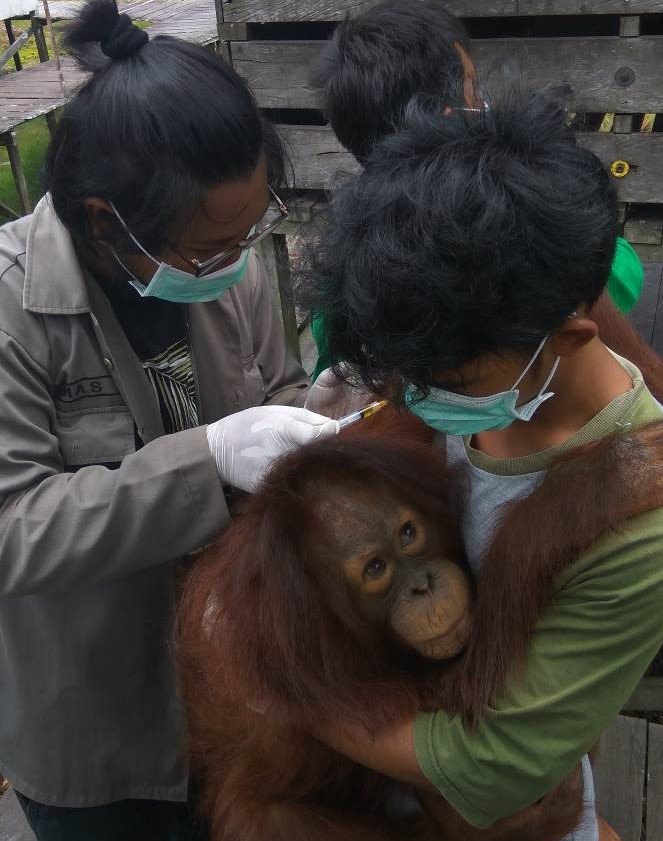
Conditions are very dry at present and so our guard post staff are vigilant and on alert for fires. All the guard posts are equipment with fire-fighting gear and our staff are trained enabling them to respond quickly and effectively to extinguish fires.
Please help us to keep forests standing and orangutans in the wild. You can support our work by donating or adopting Okto or Mona.


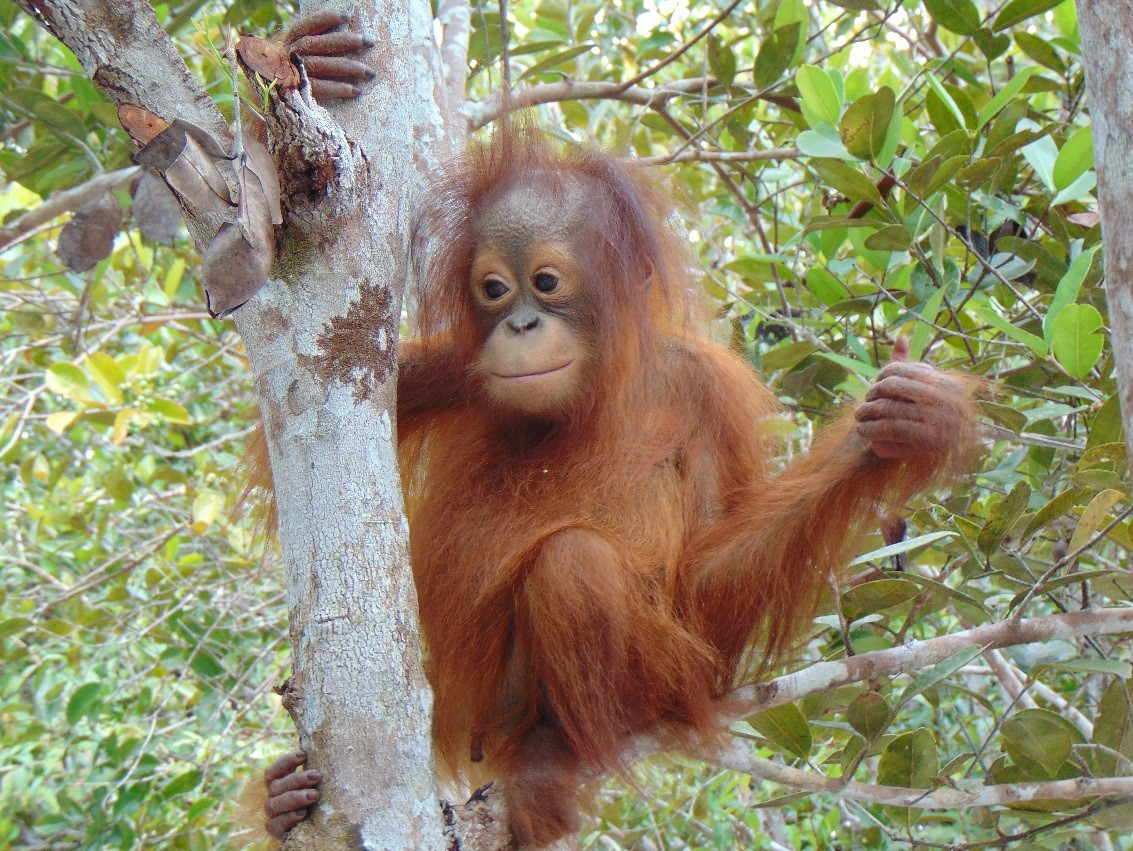


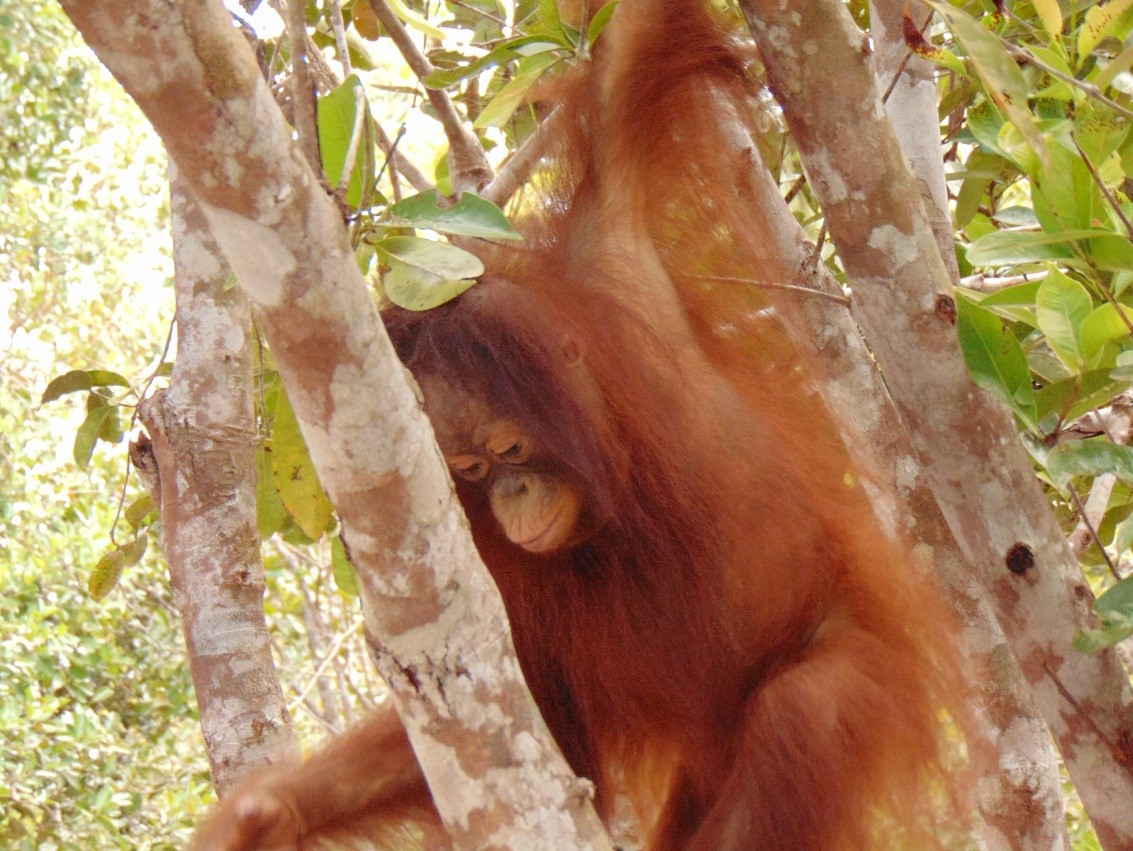

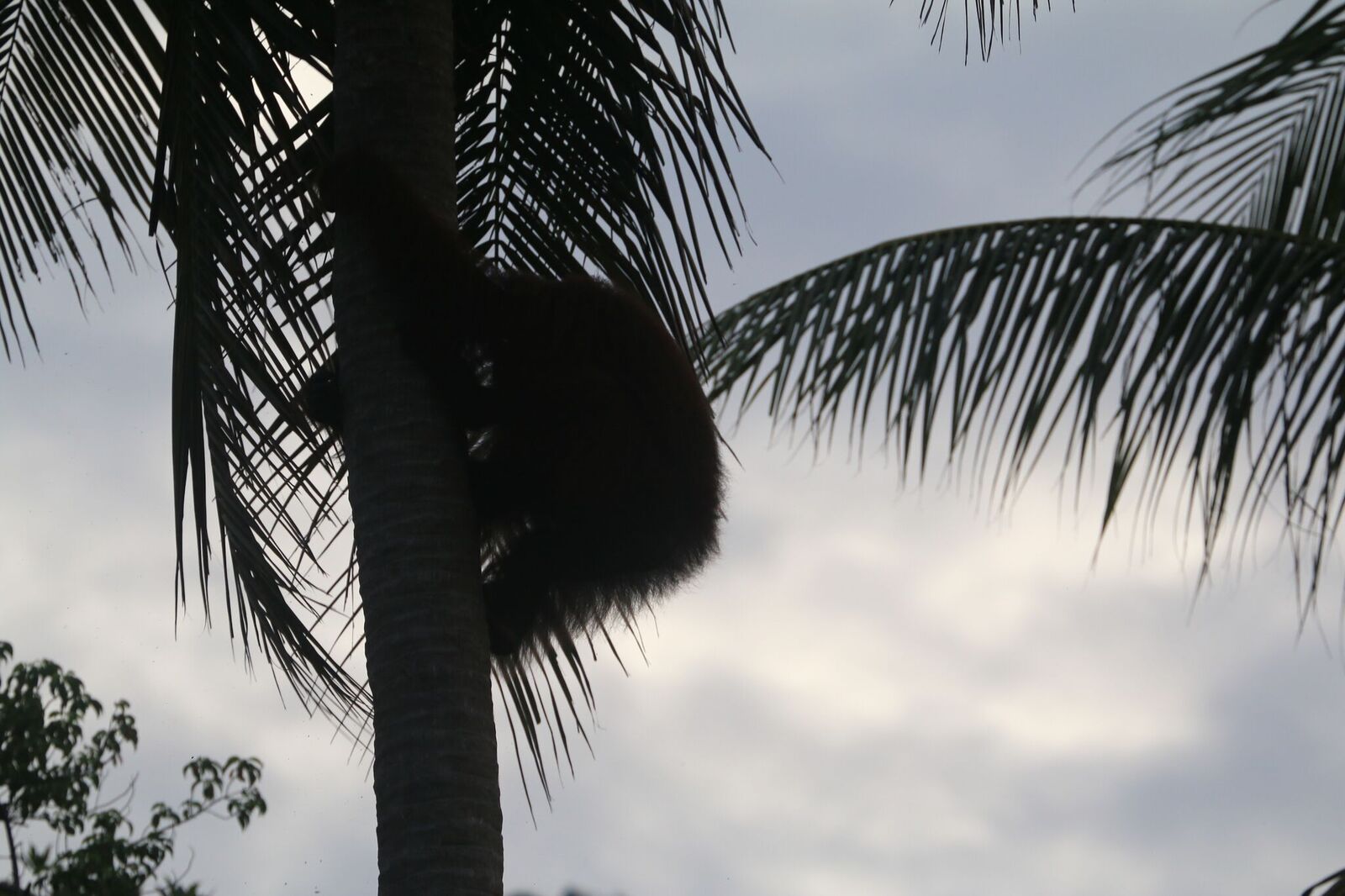
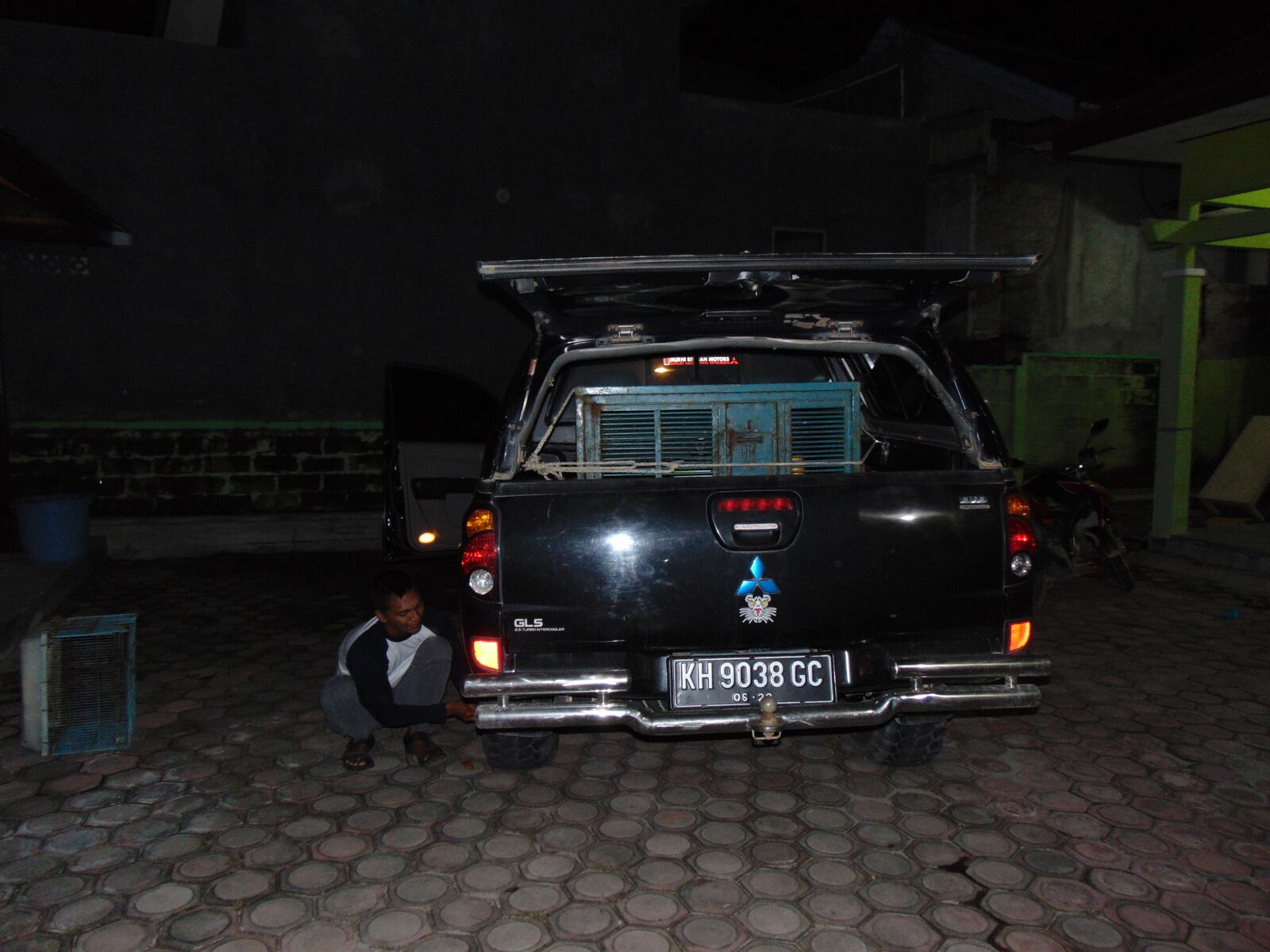
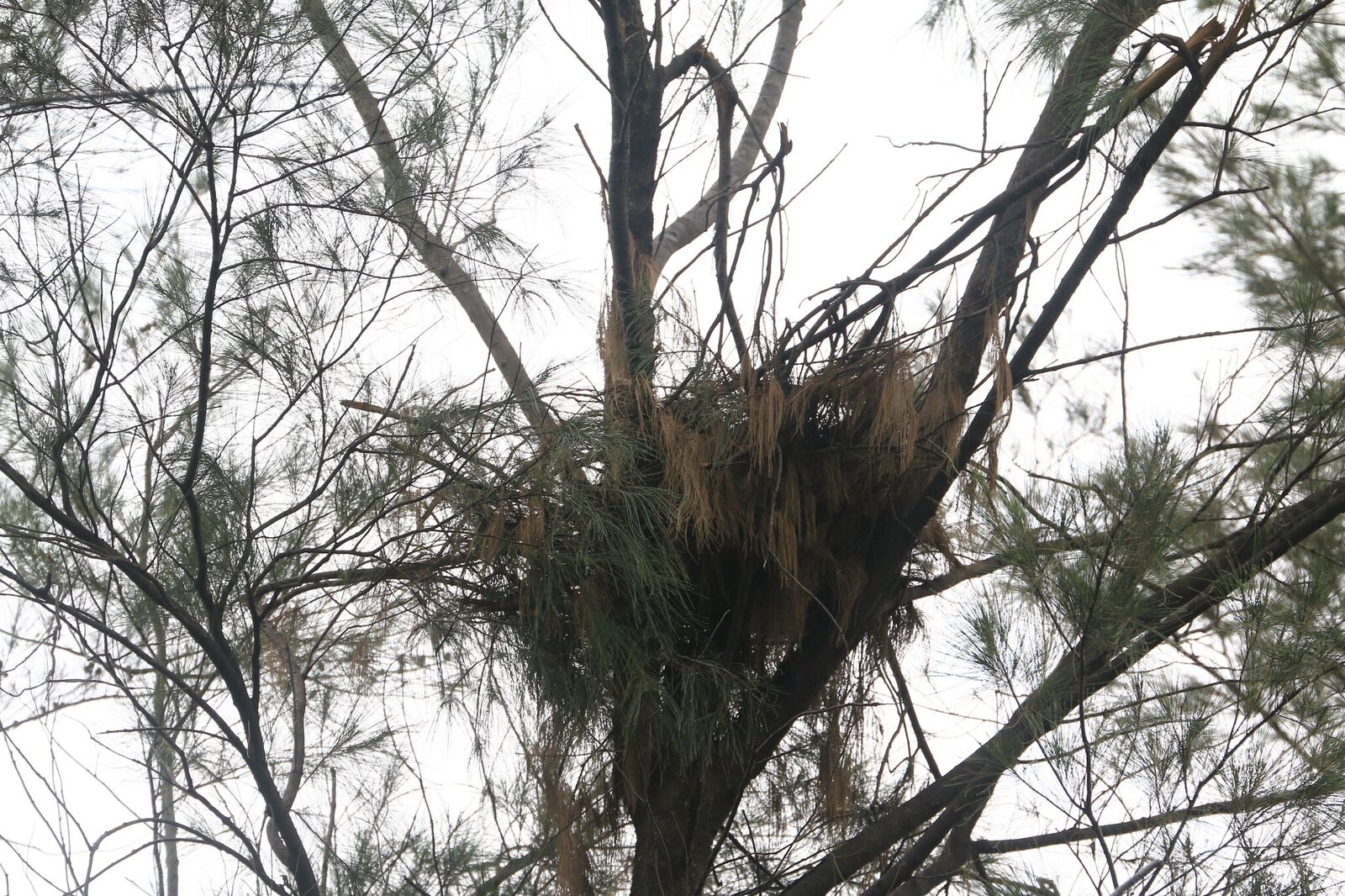
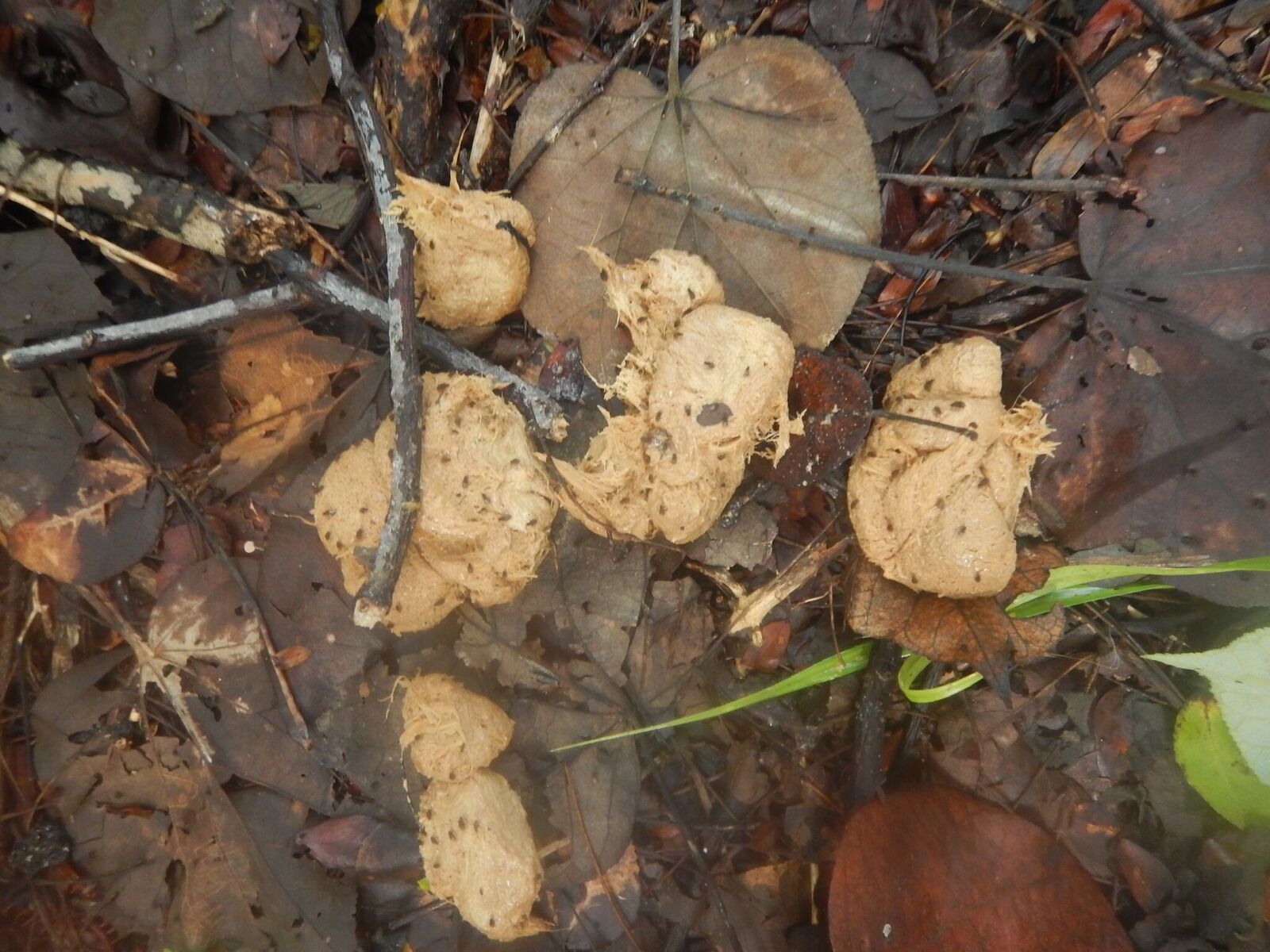
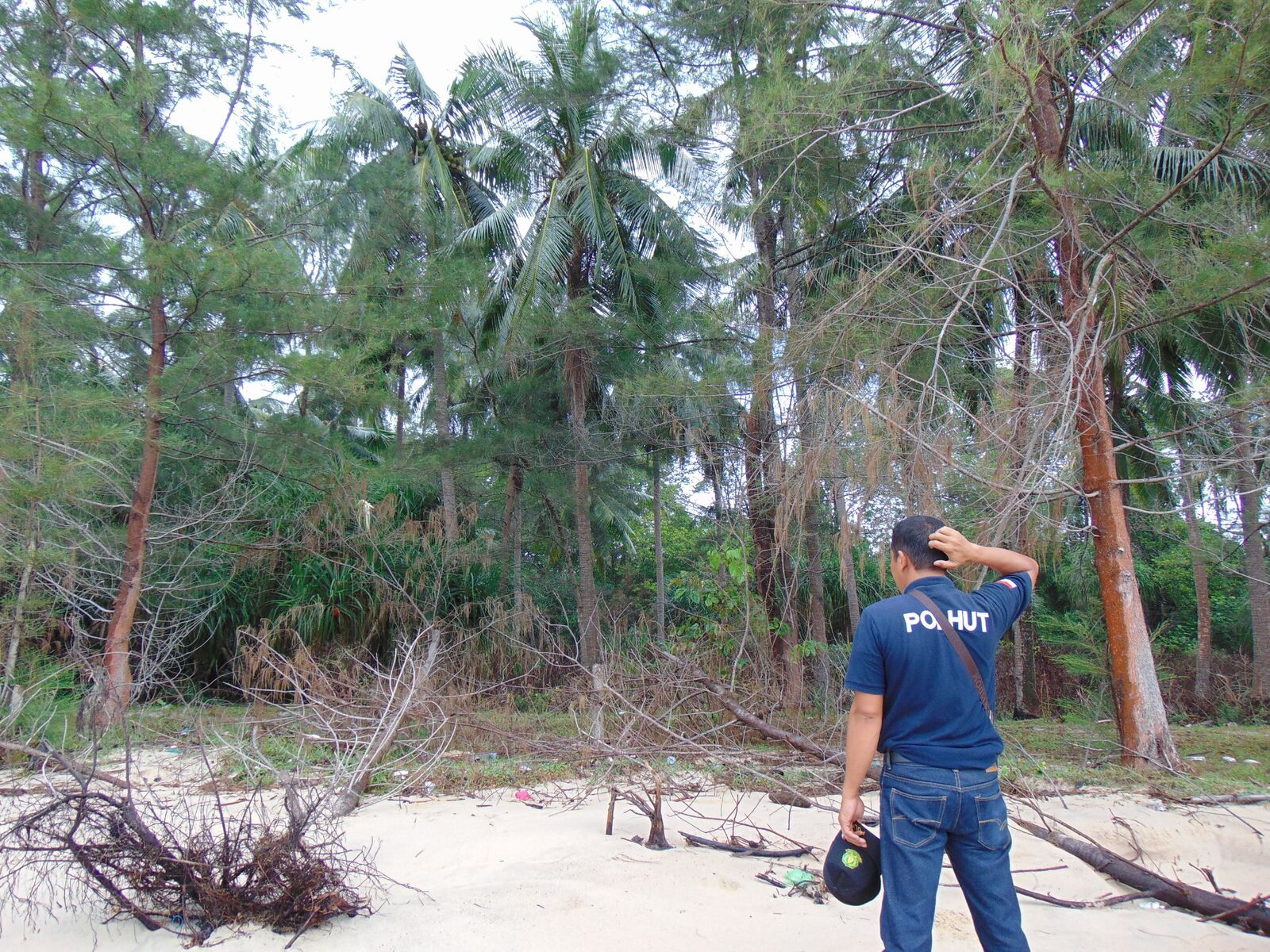
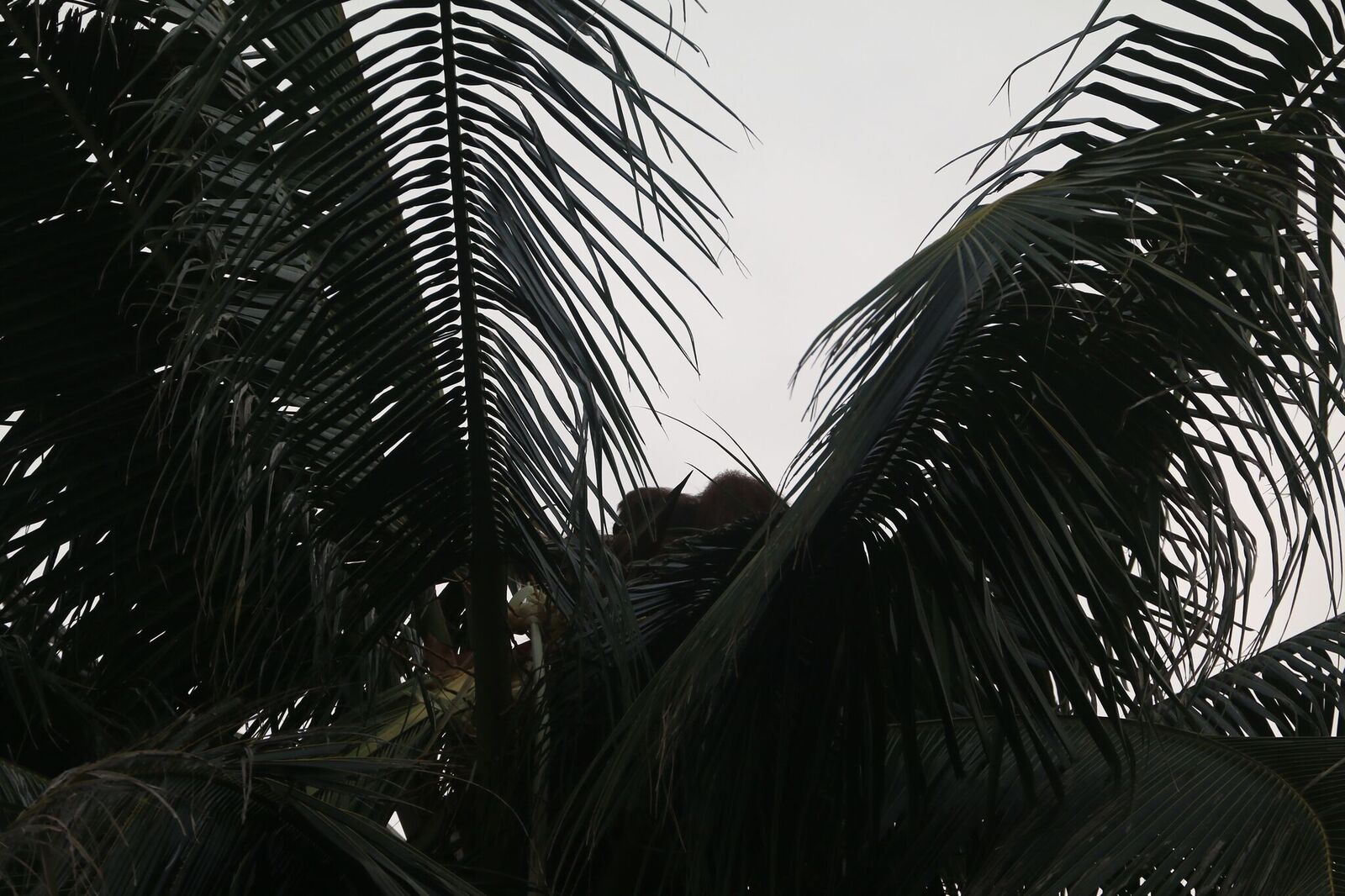
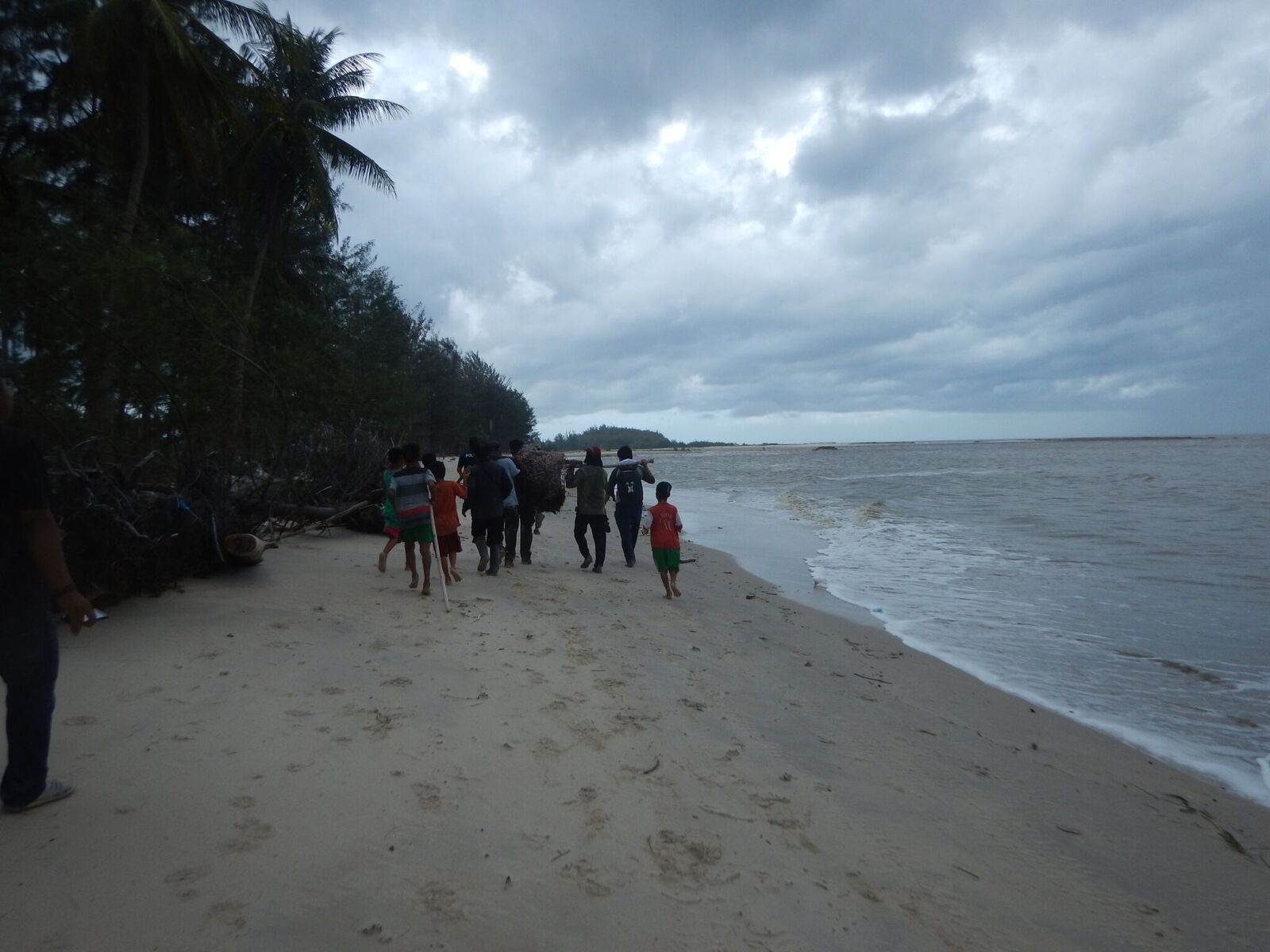
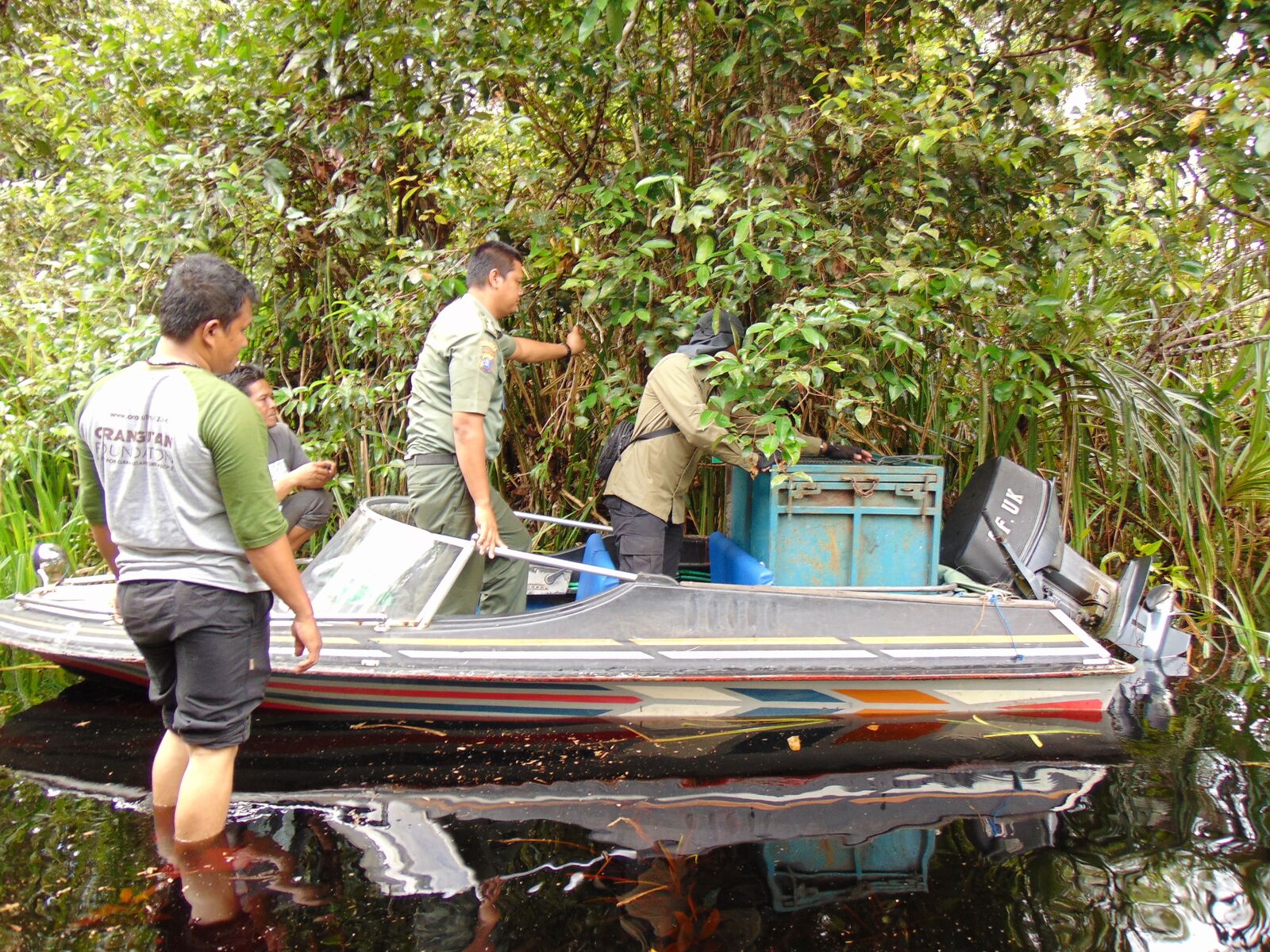
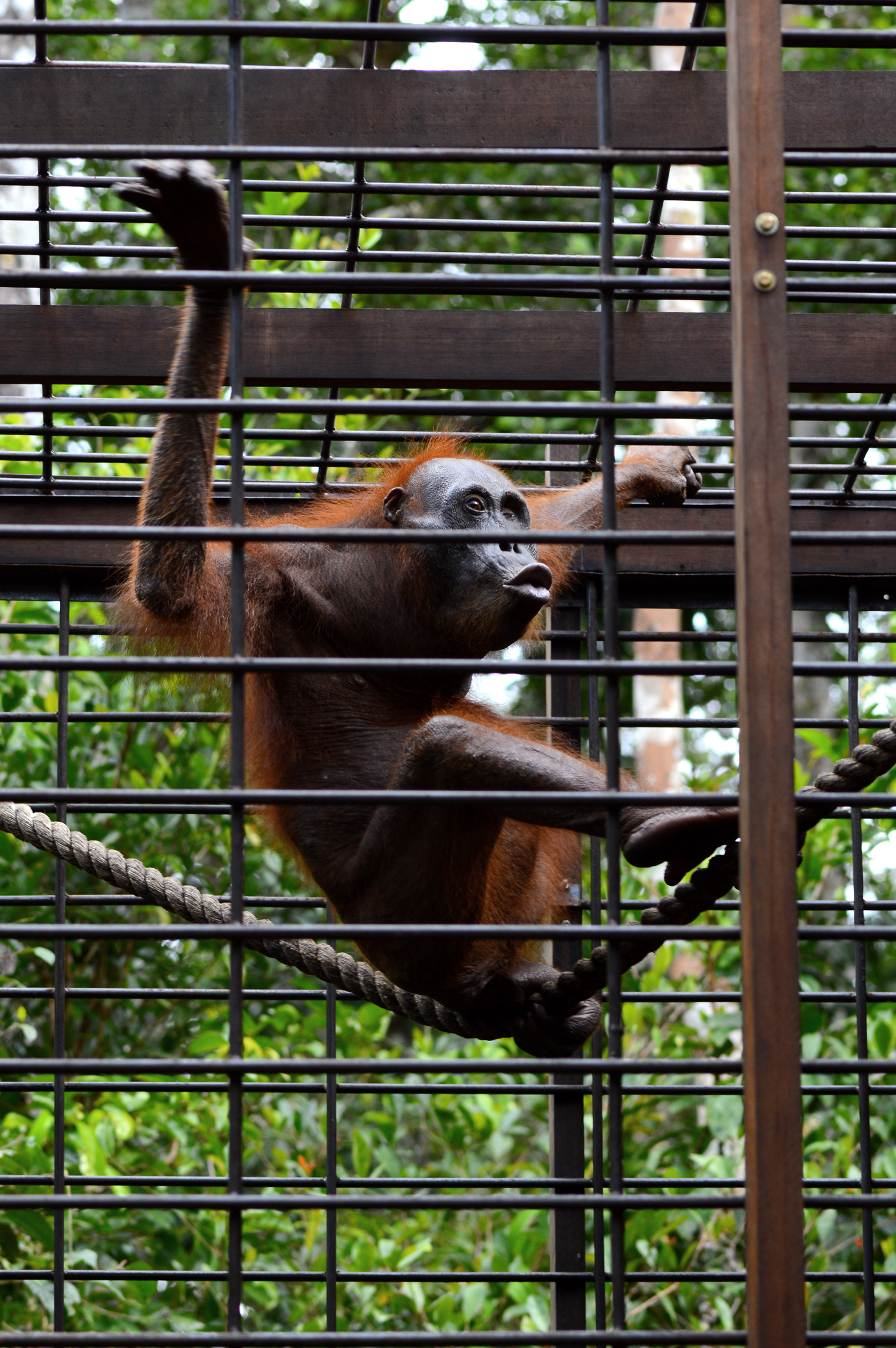
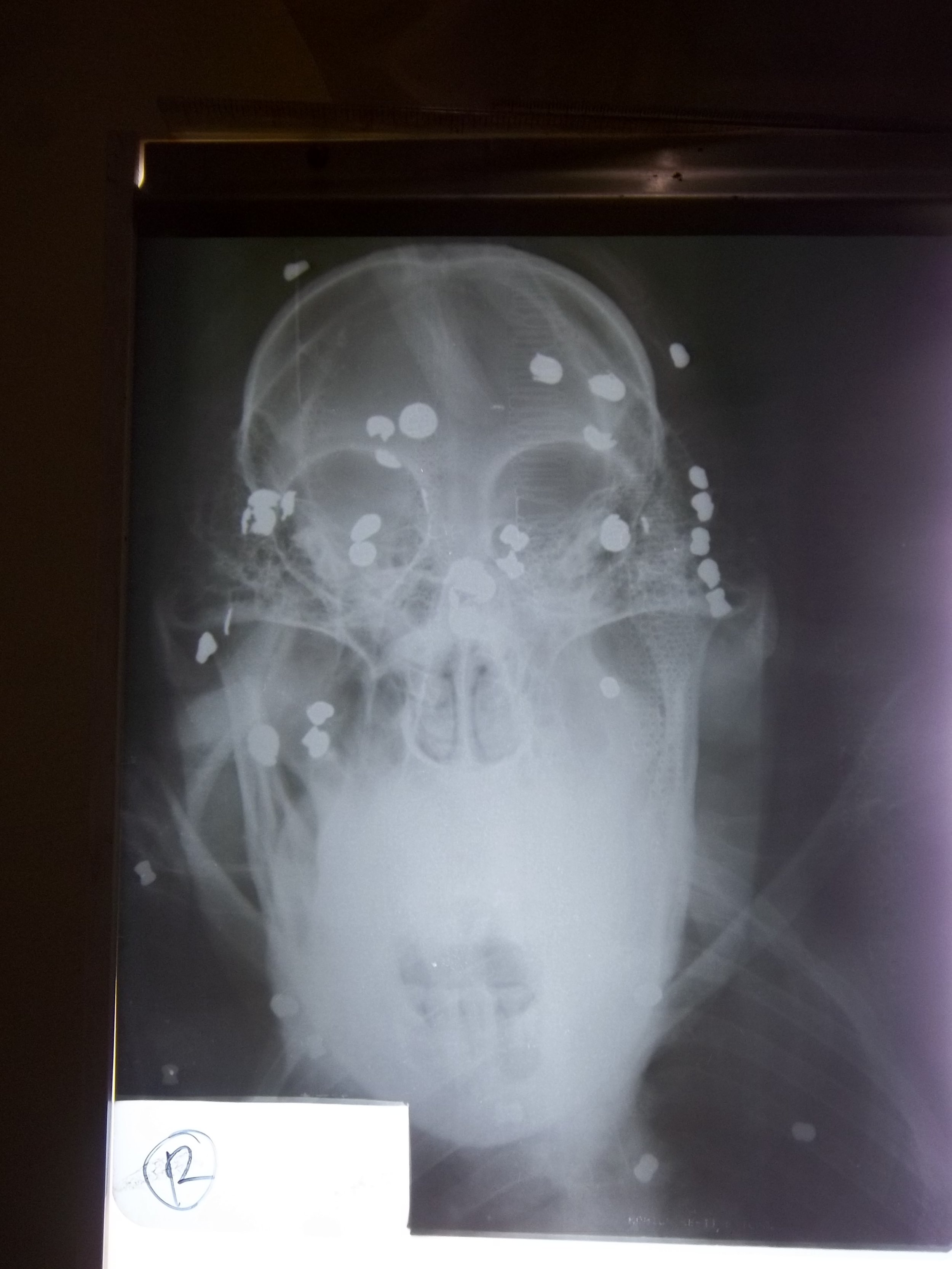
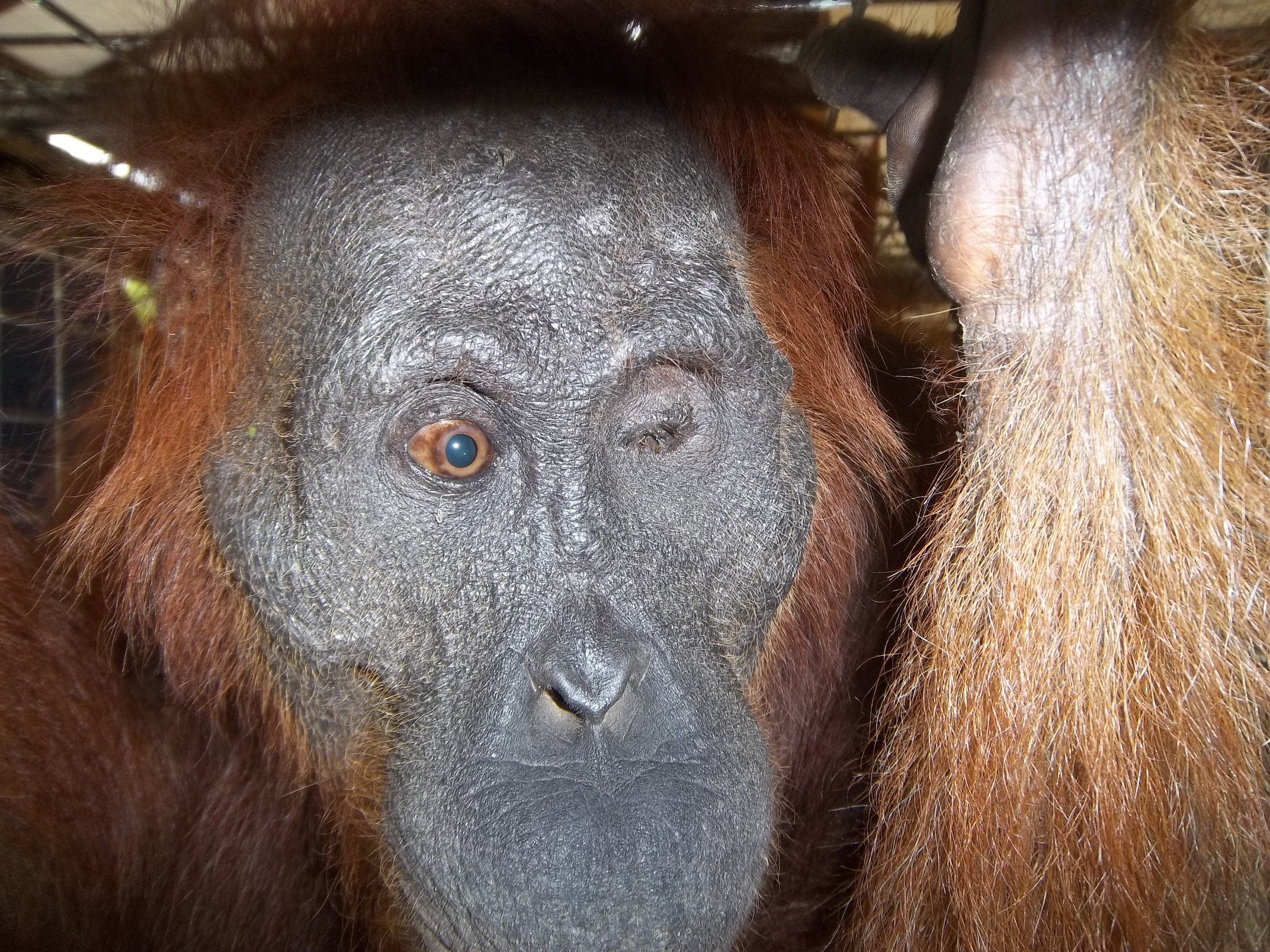
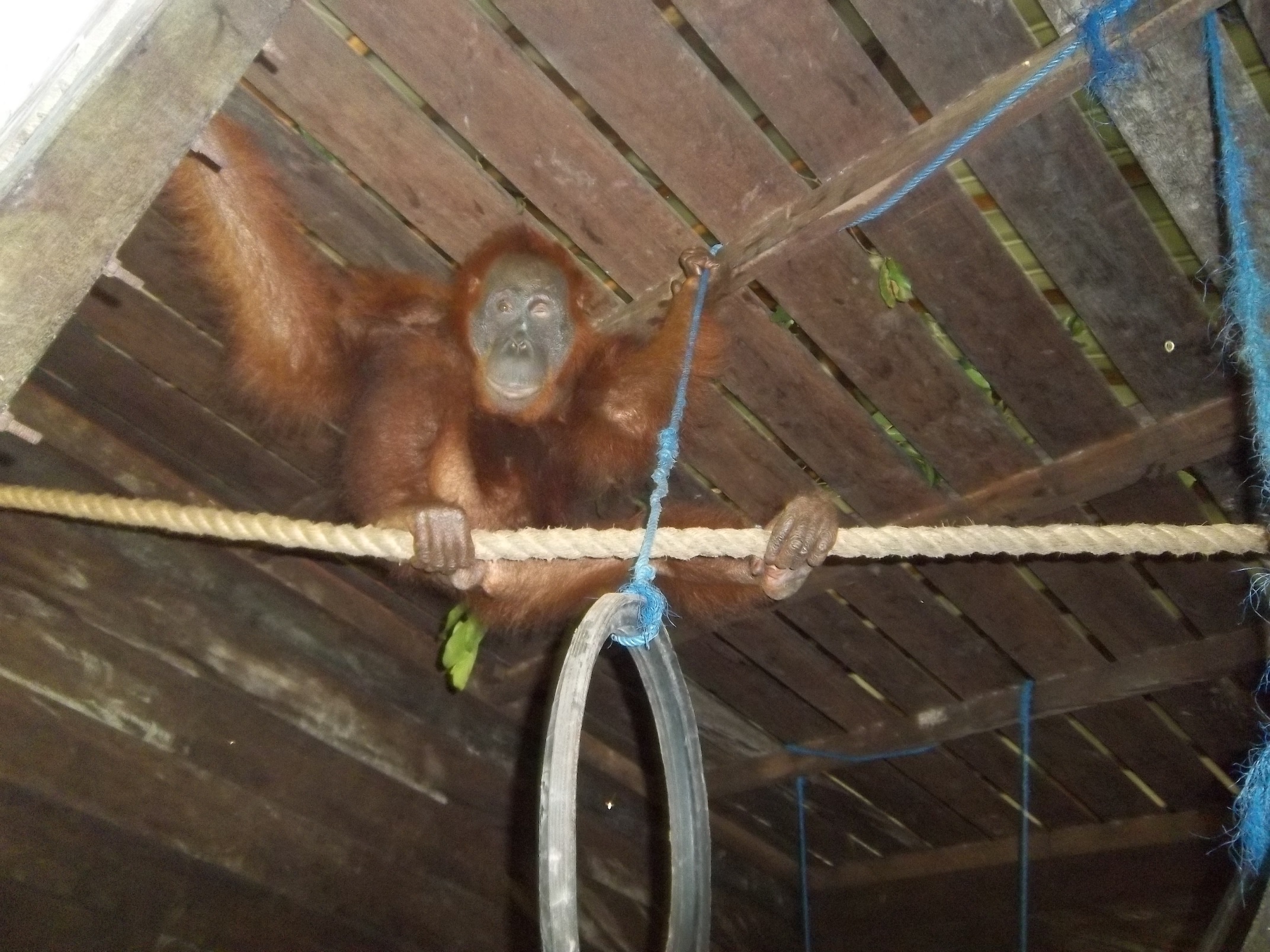
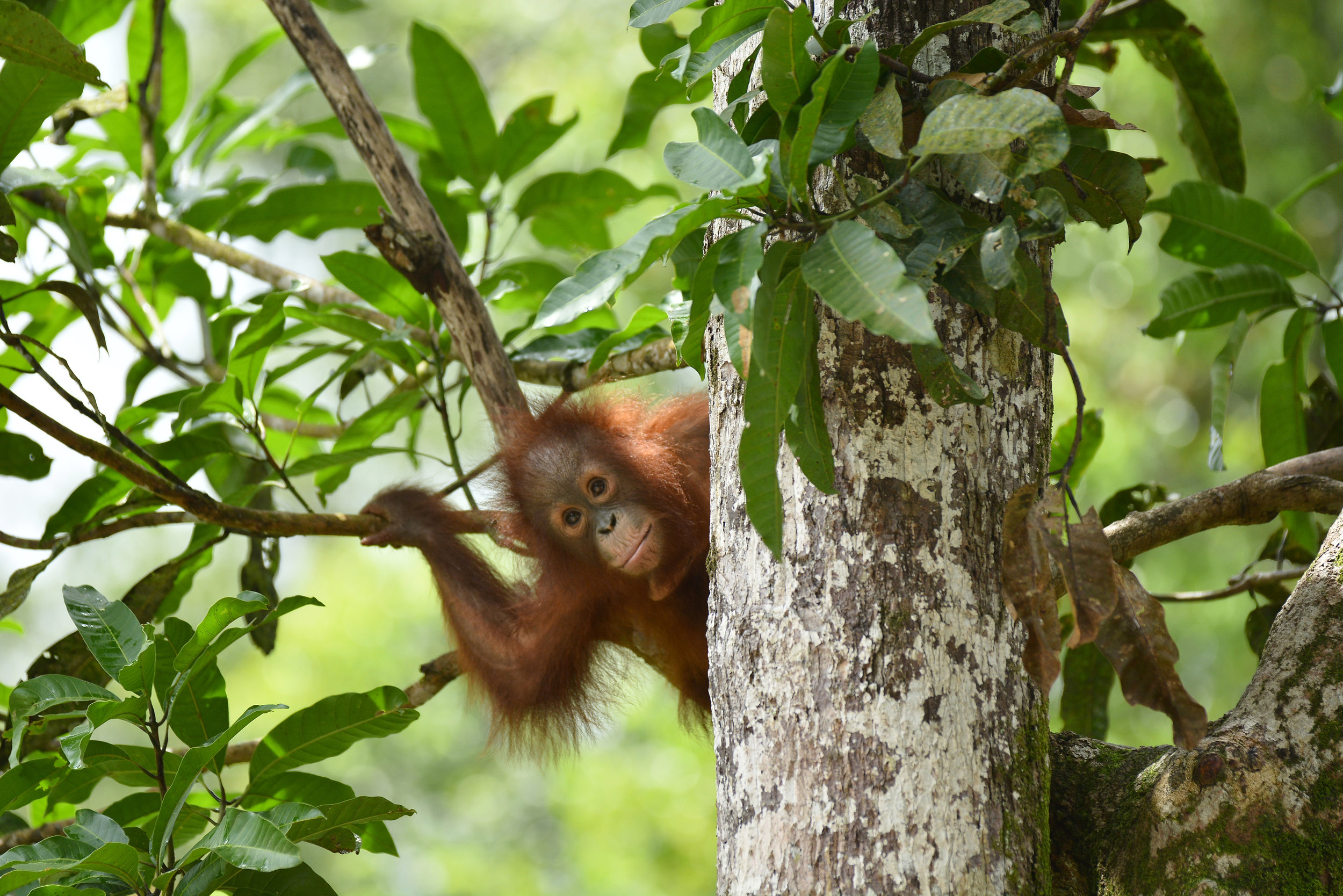
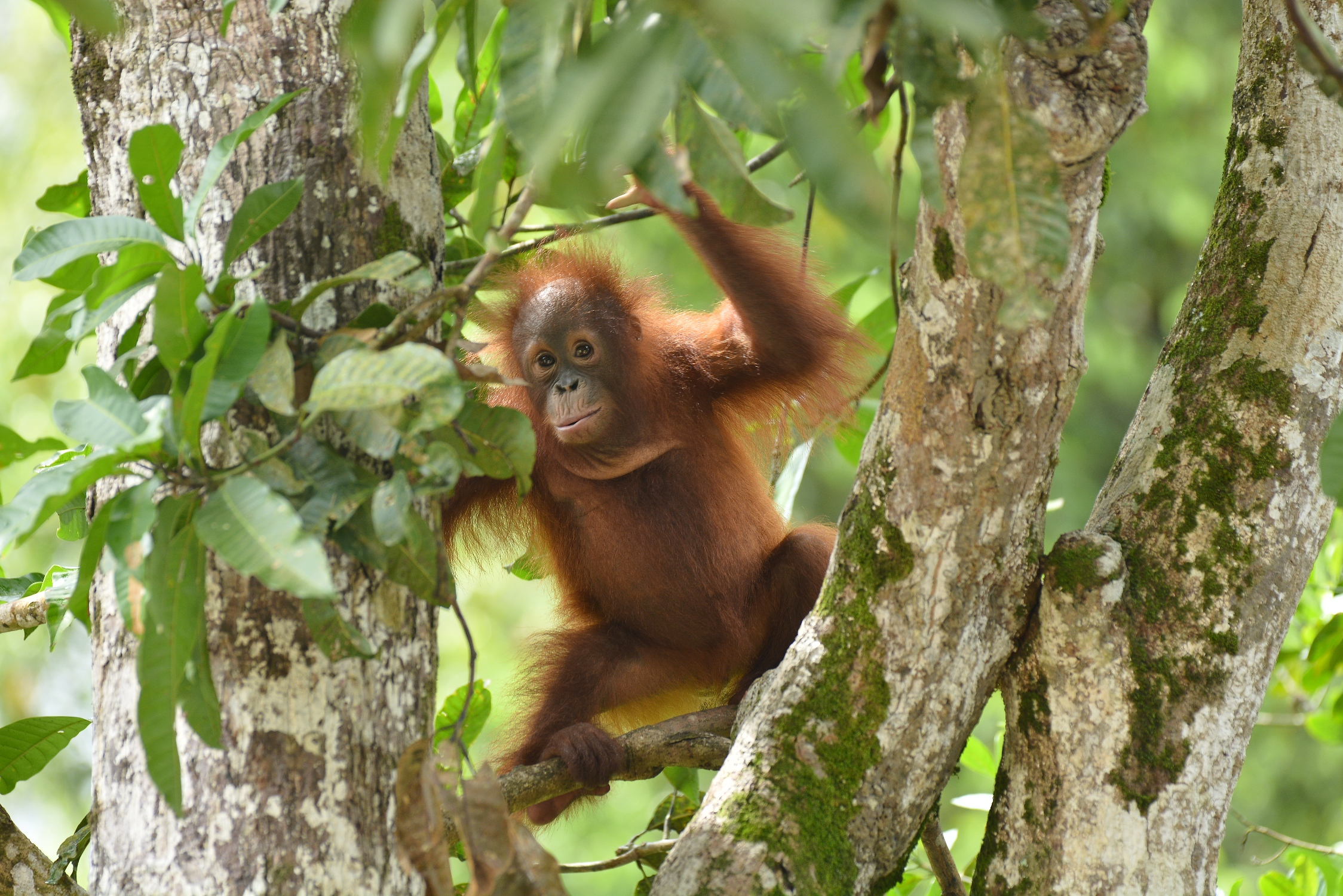
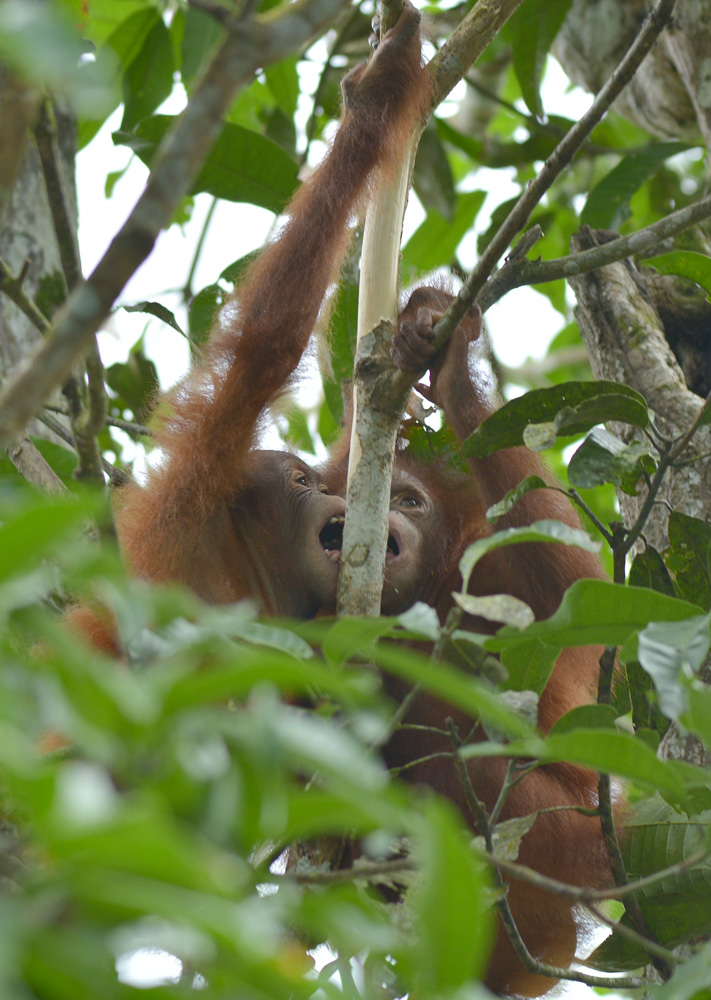
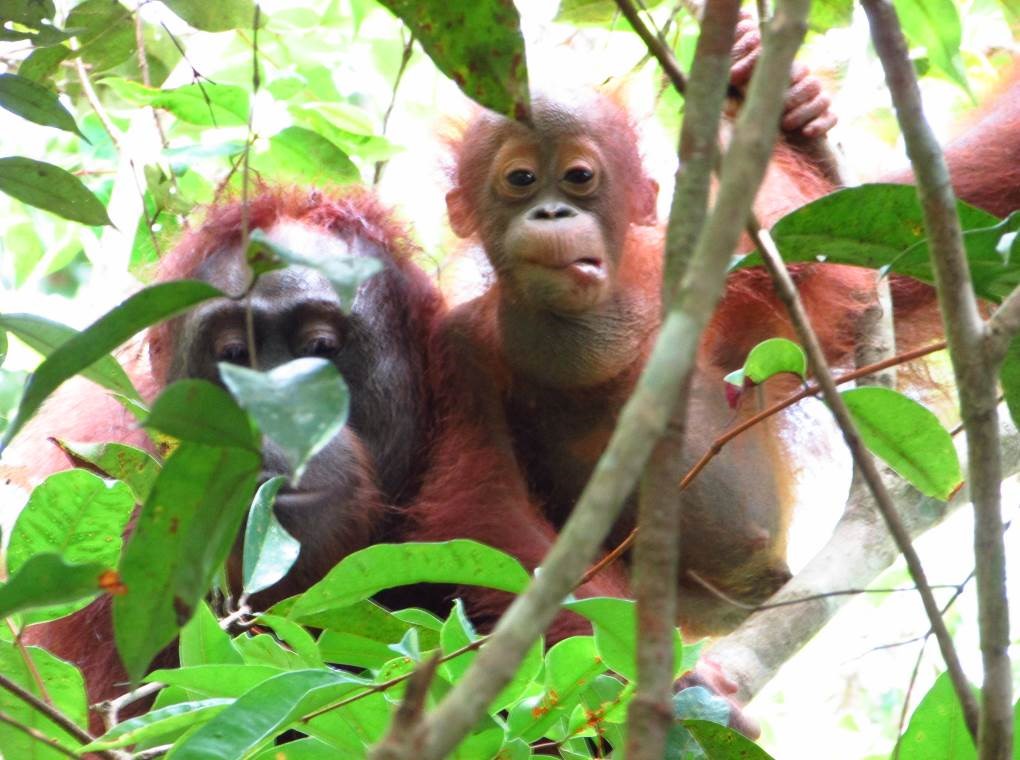
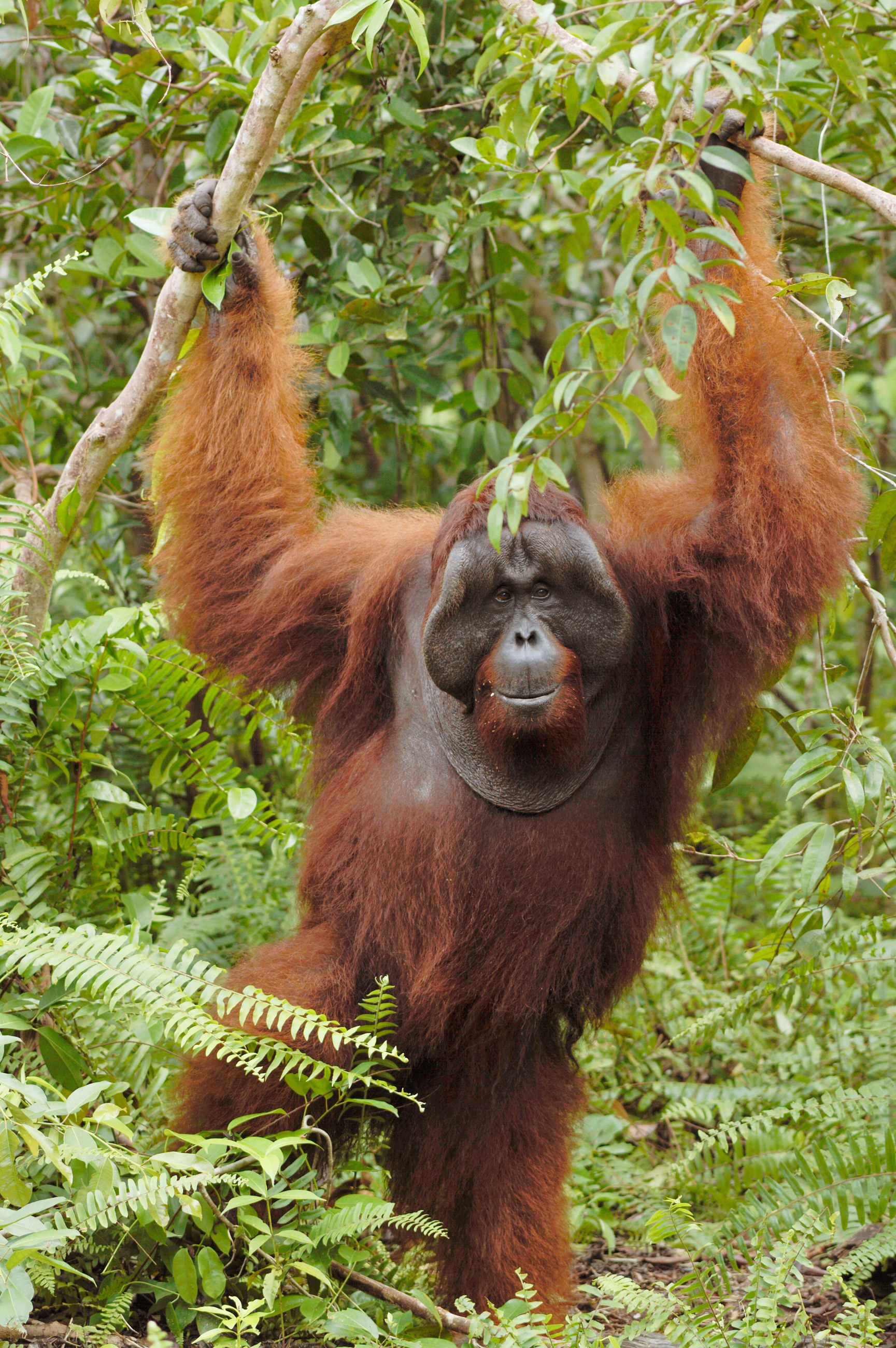
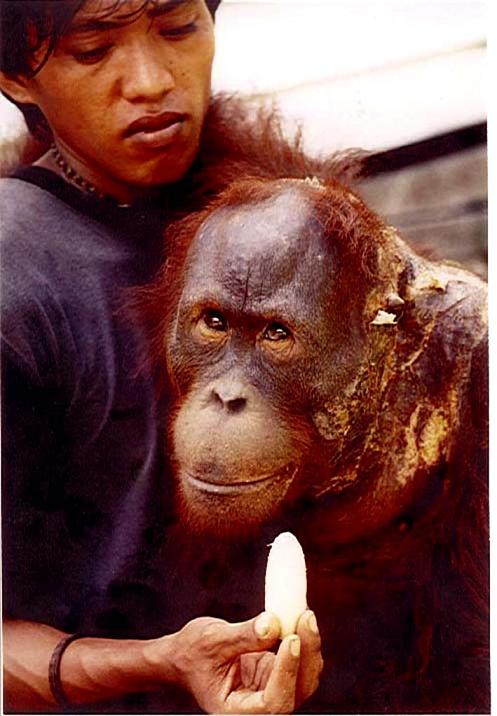
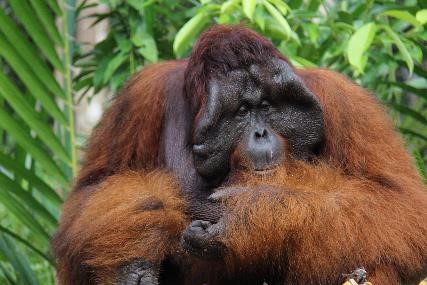
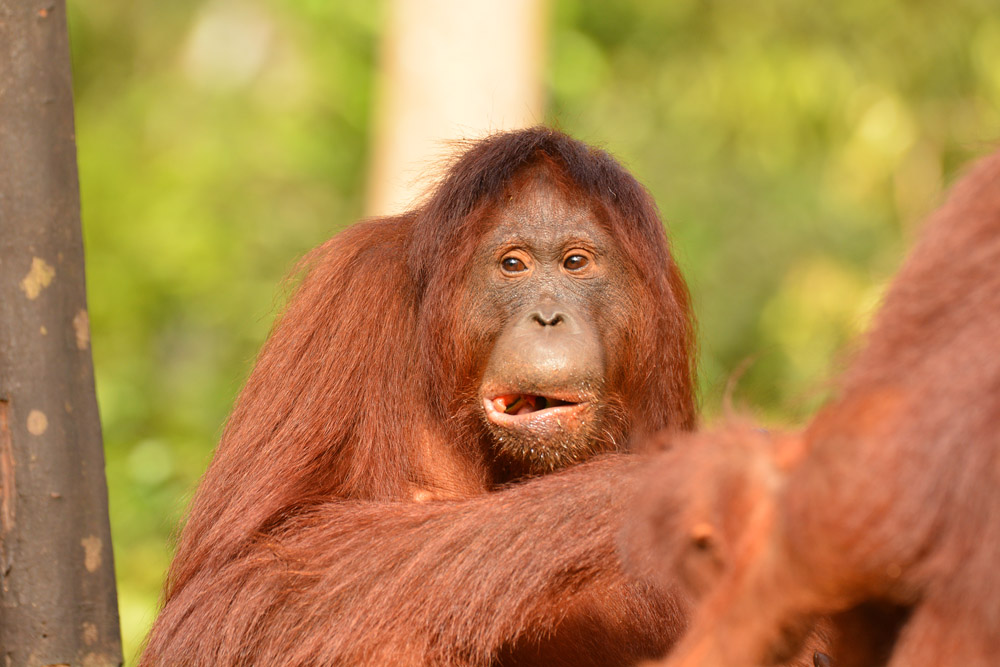
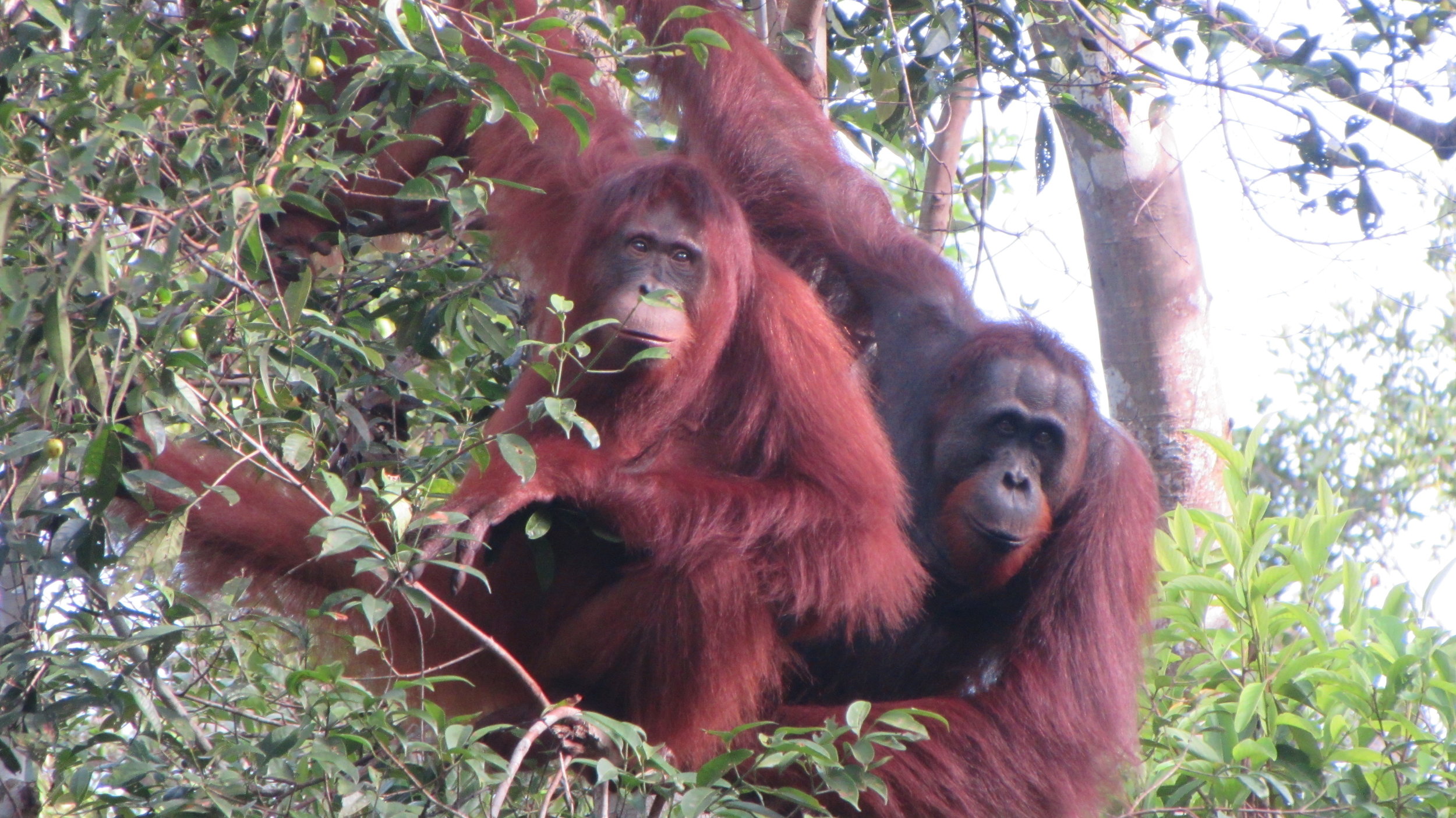
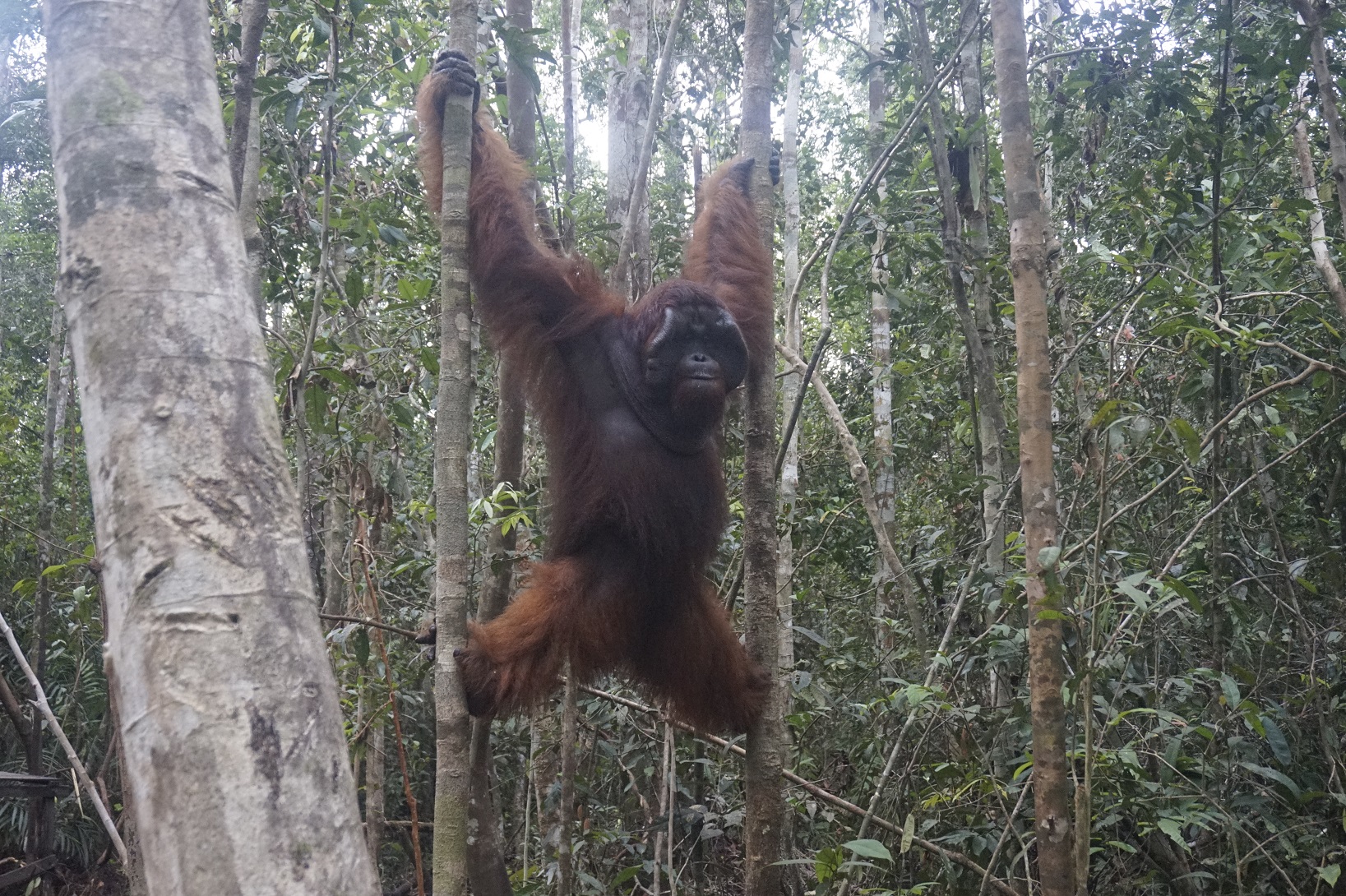
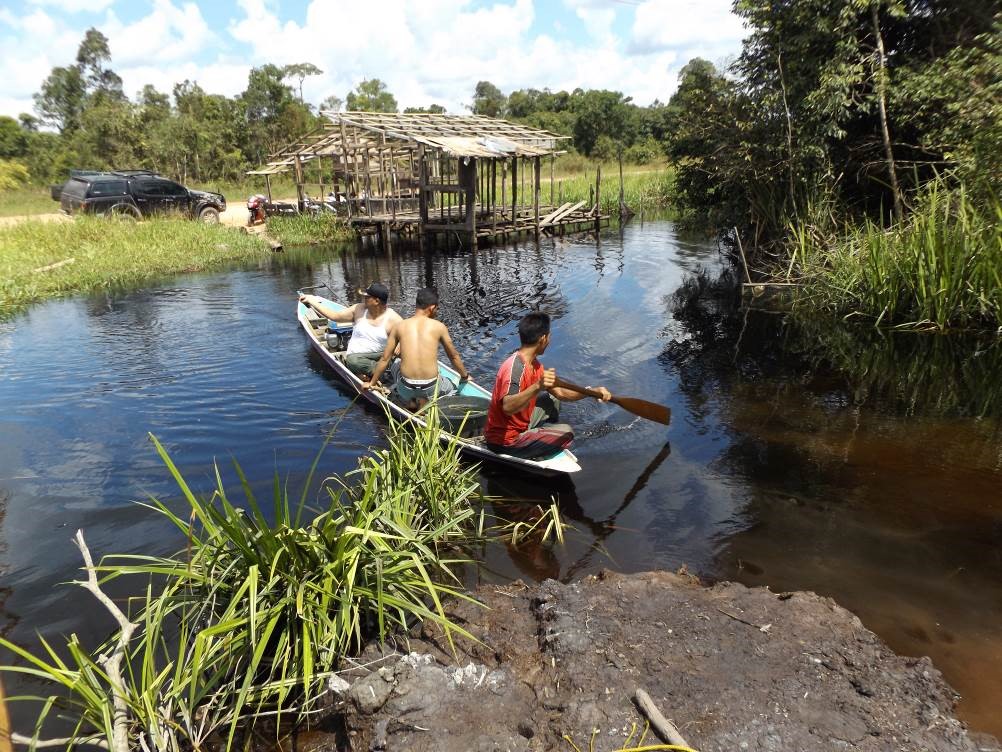
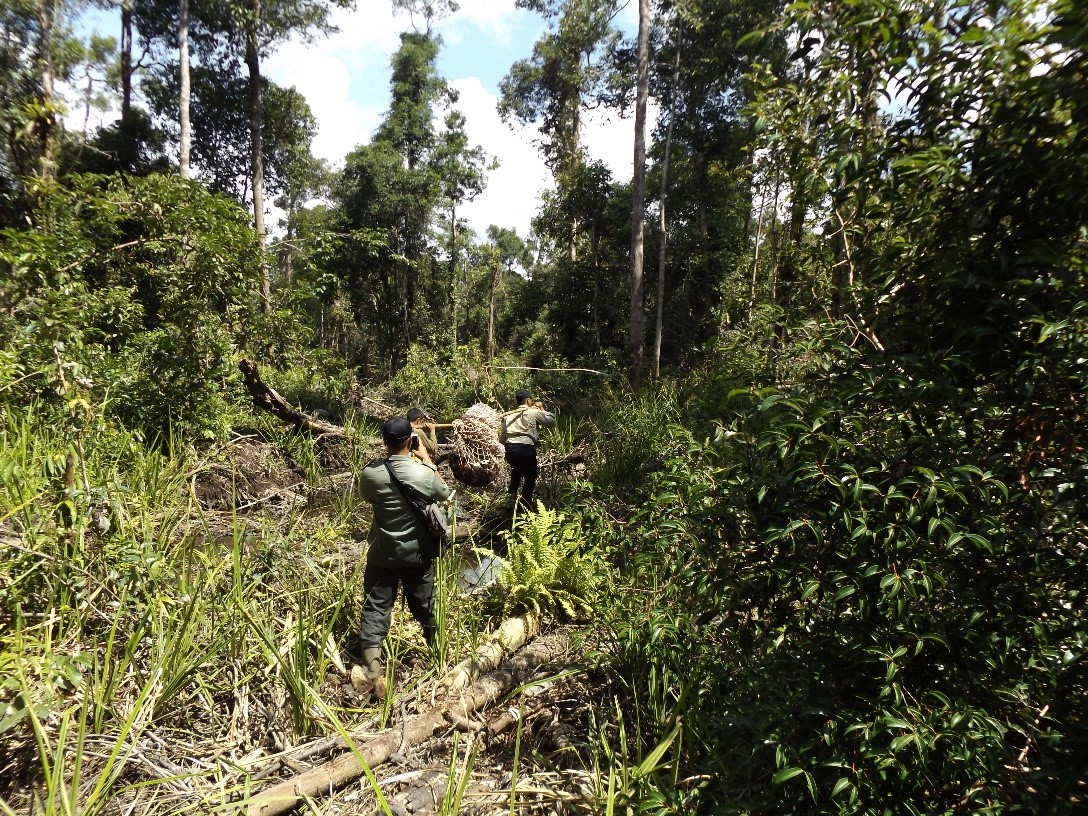


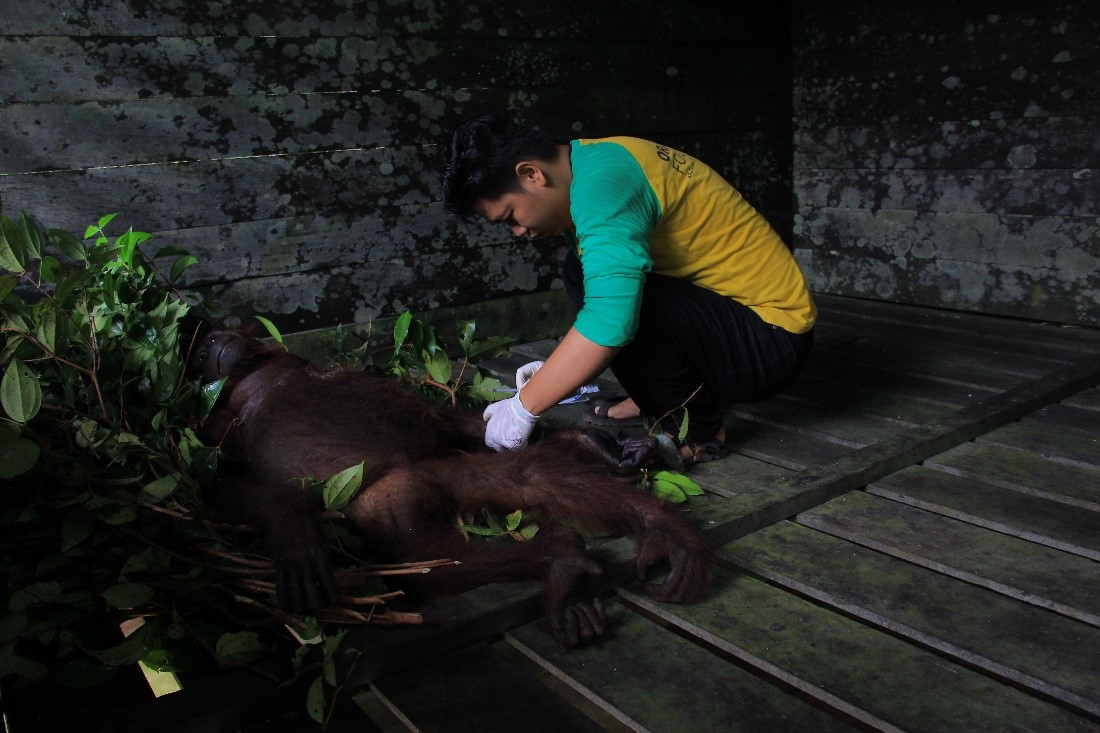
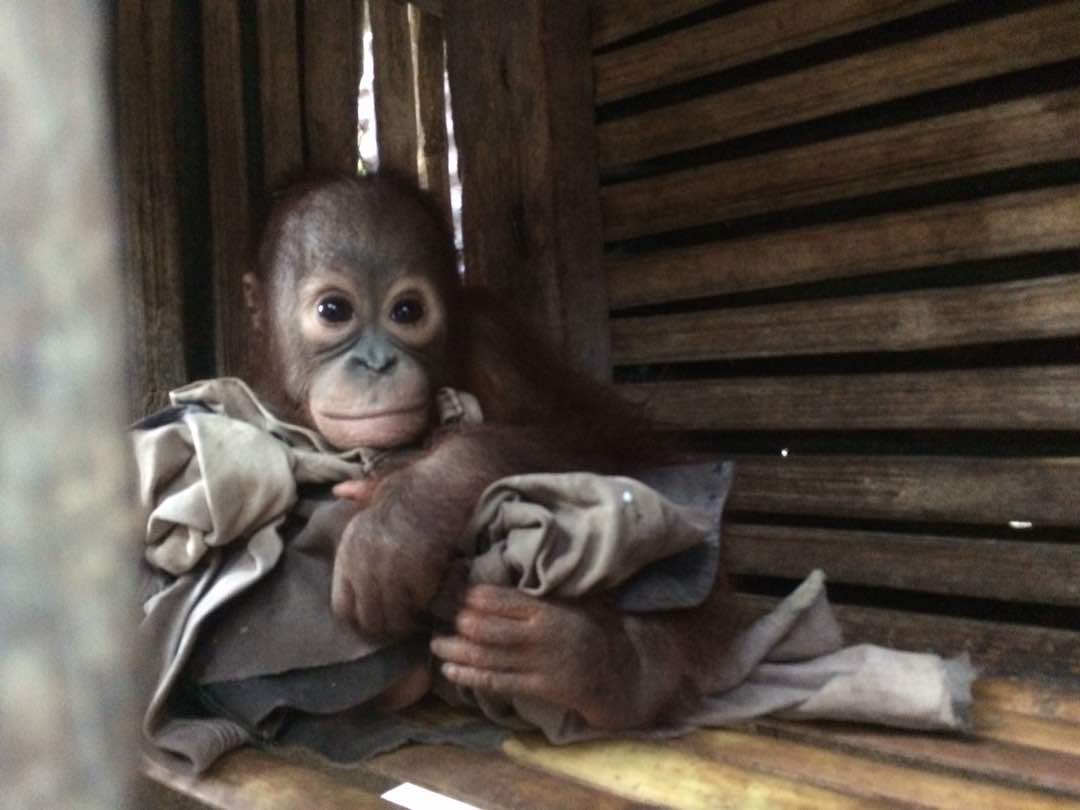 On 19th June 2017, BKSDA informed our field staff that they had just confiscated an orangutan from people who had been keeping it as a pet in a nearby village. This orangutan was entrusted into the care of the Orangutan Foundation.
On 19th June 2017, BKSDA informed our field staff that they had just confiscated an orangutan from people who had been keeping it as a pet in a nearby village. This orangutan was entrusted into the care of the Orangutan Foundation.
